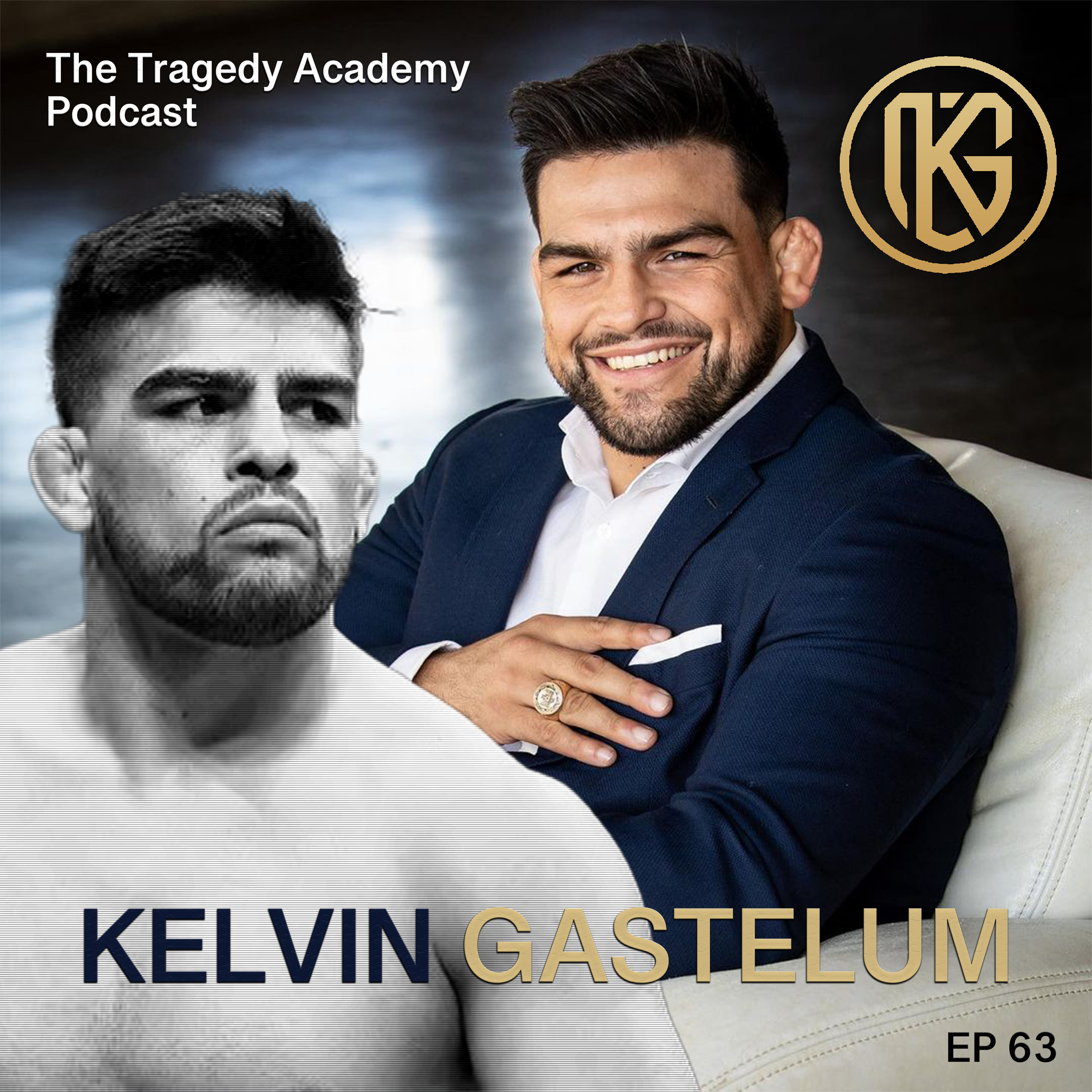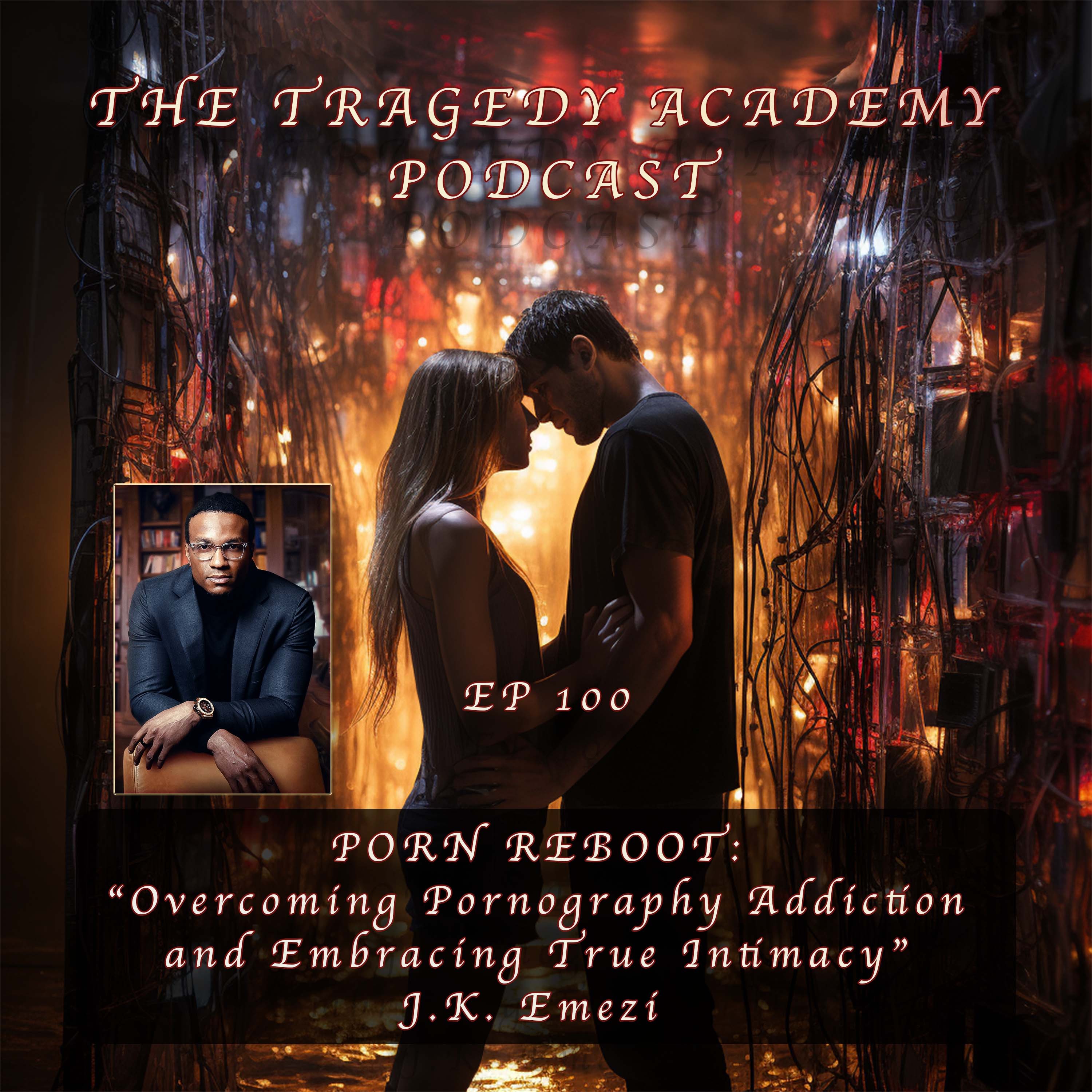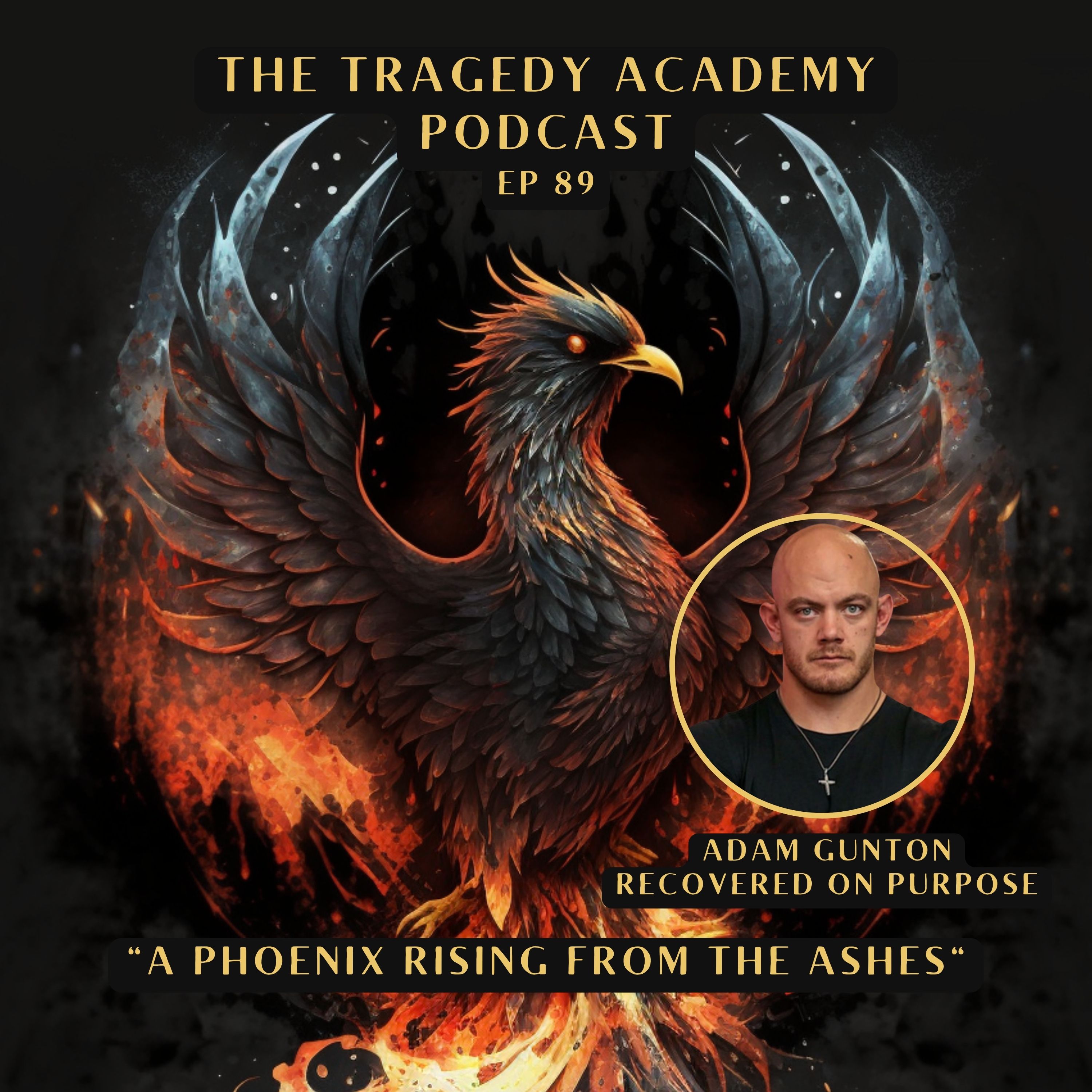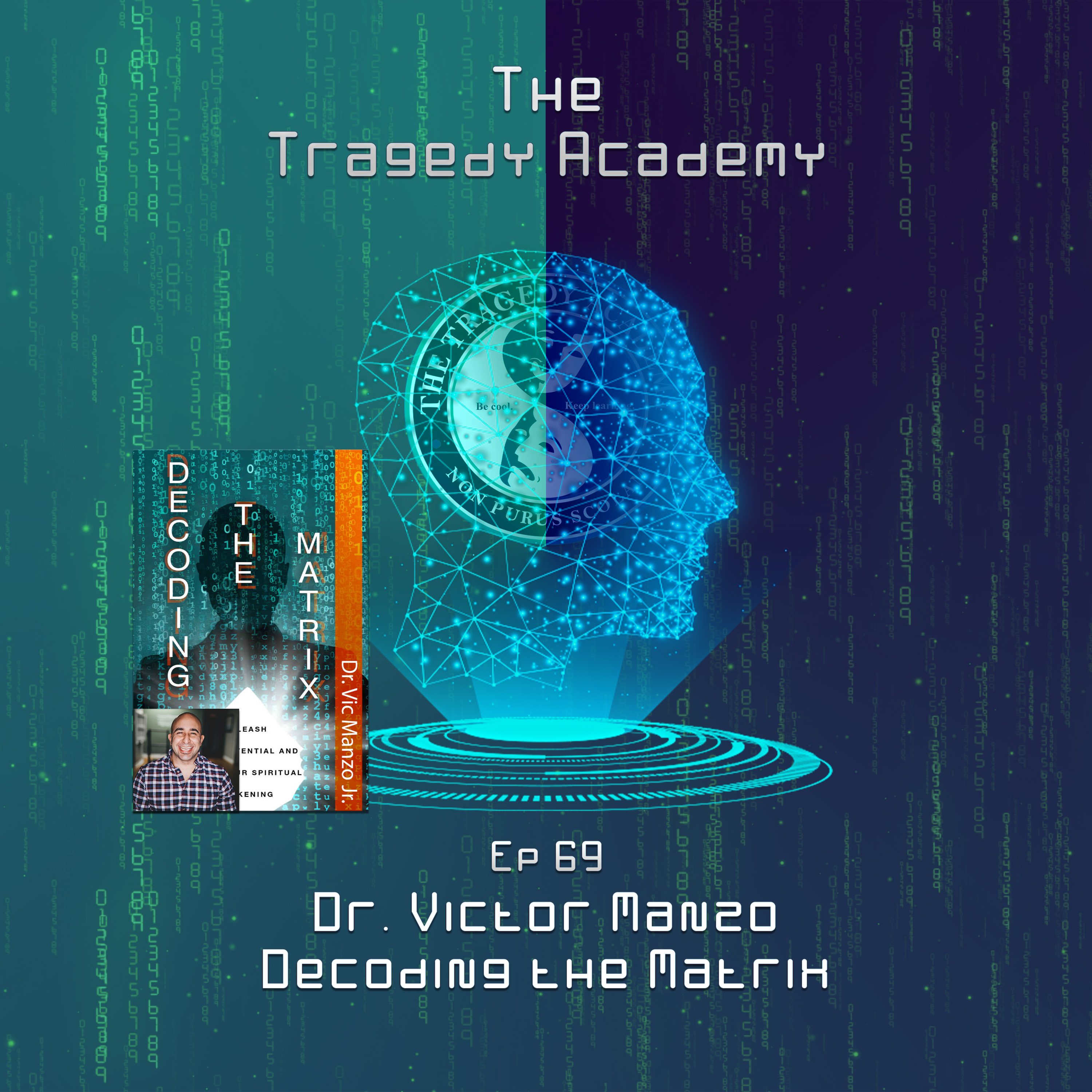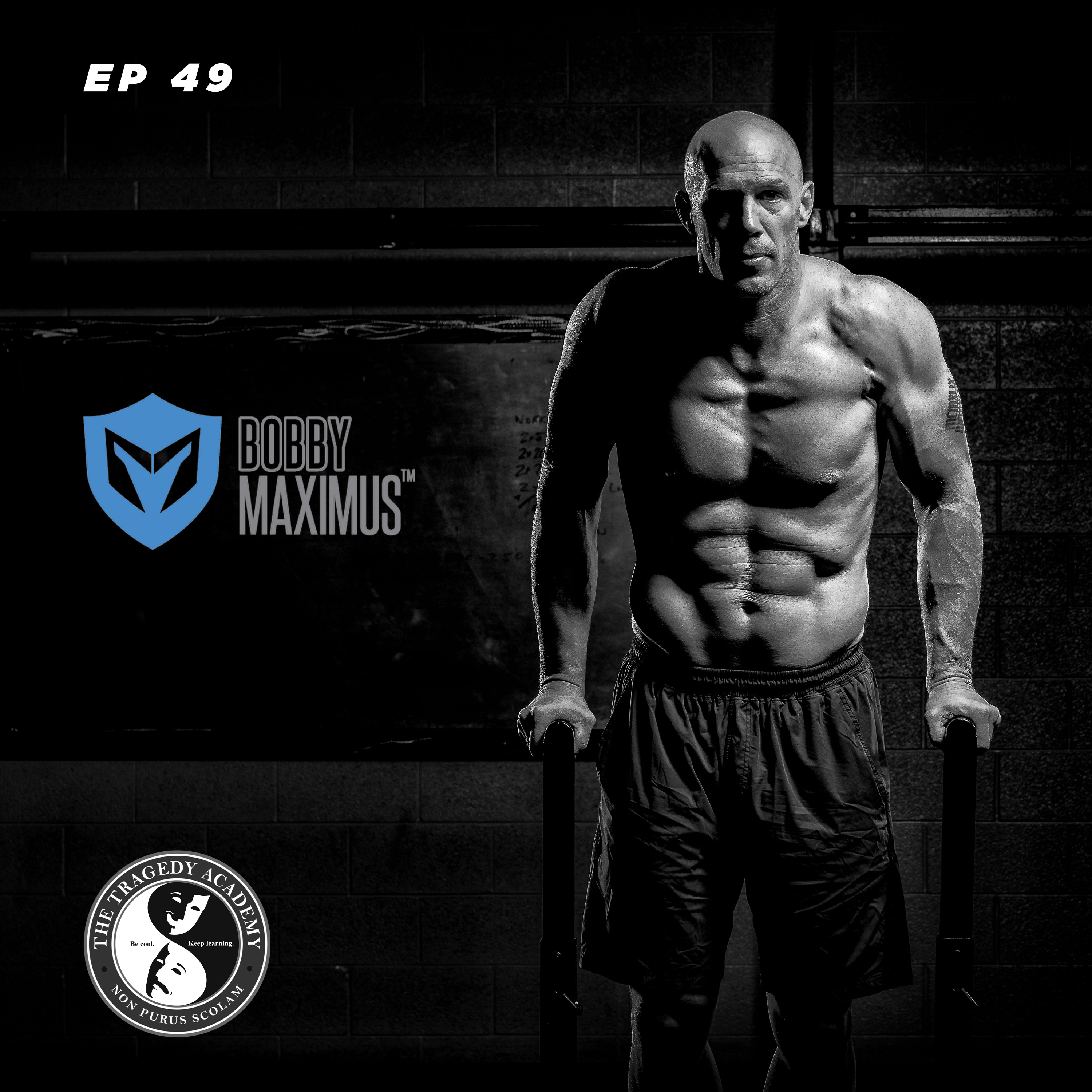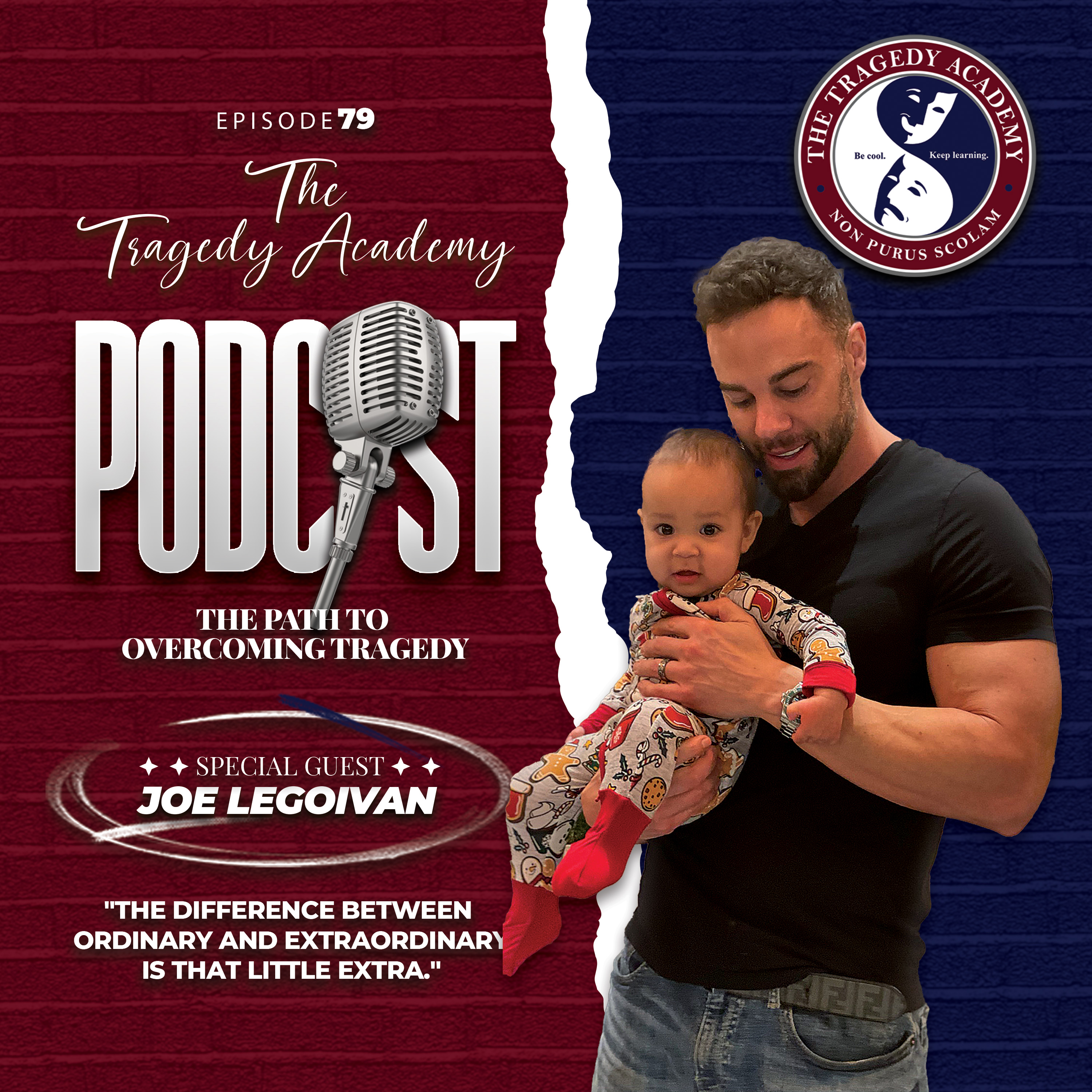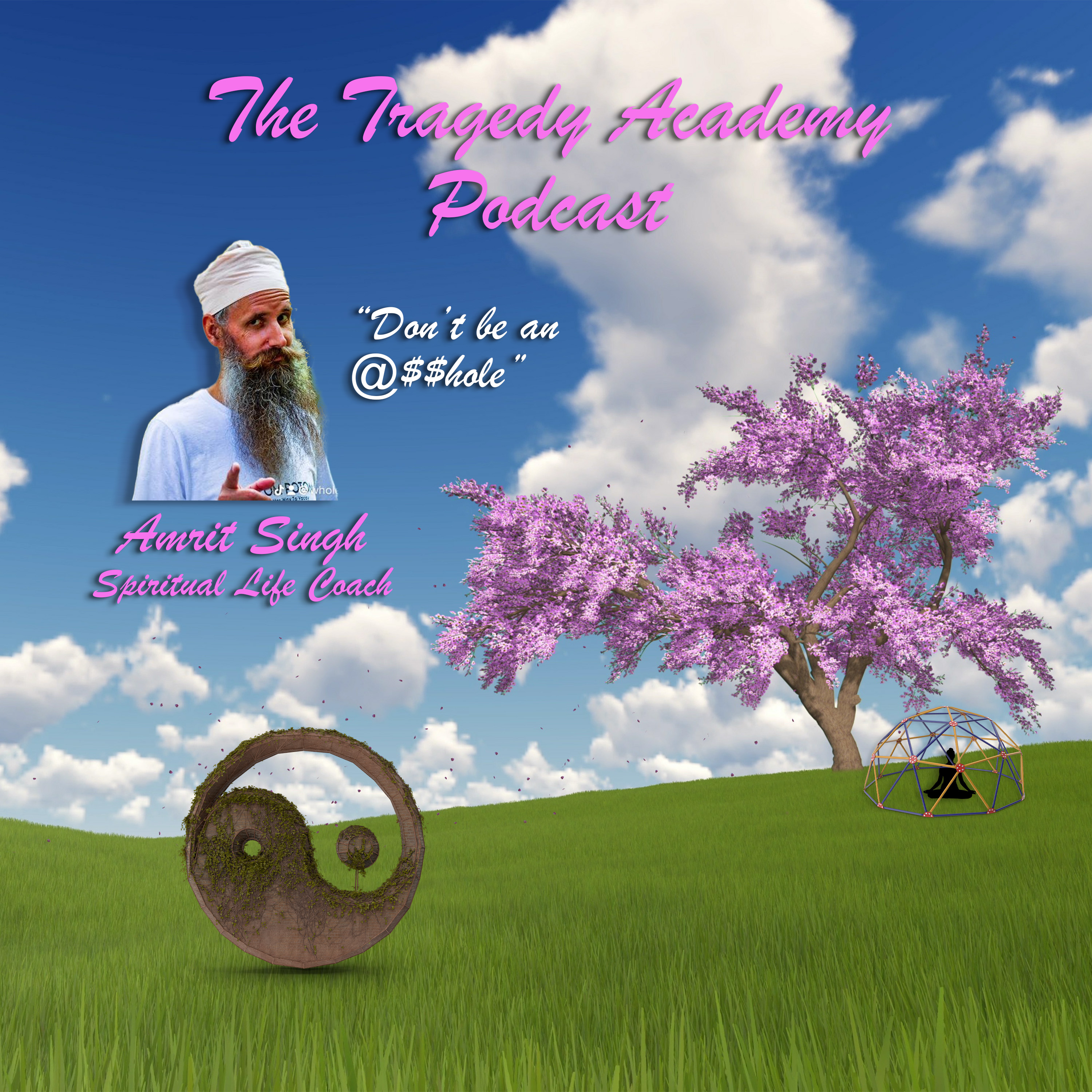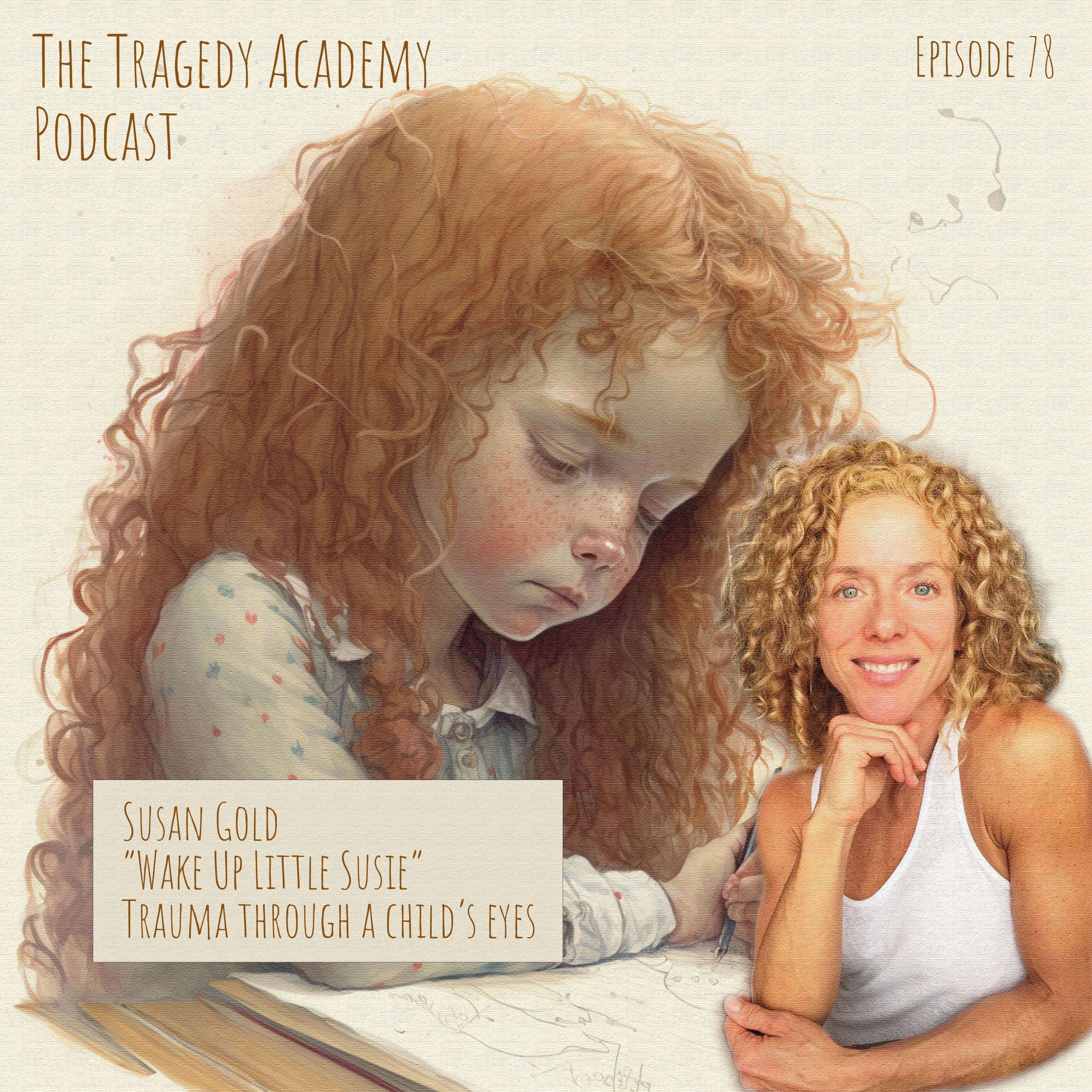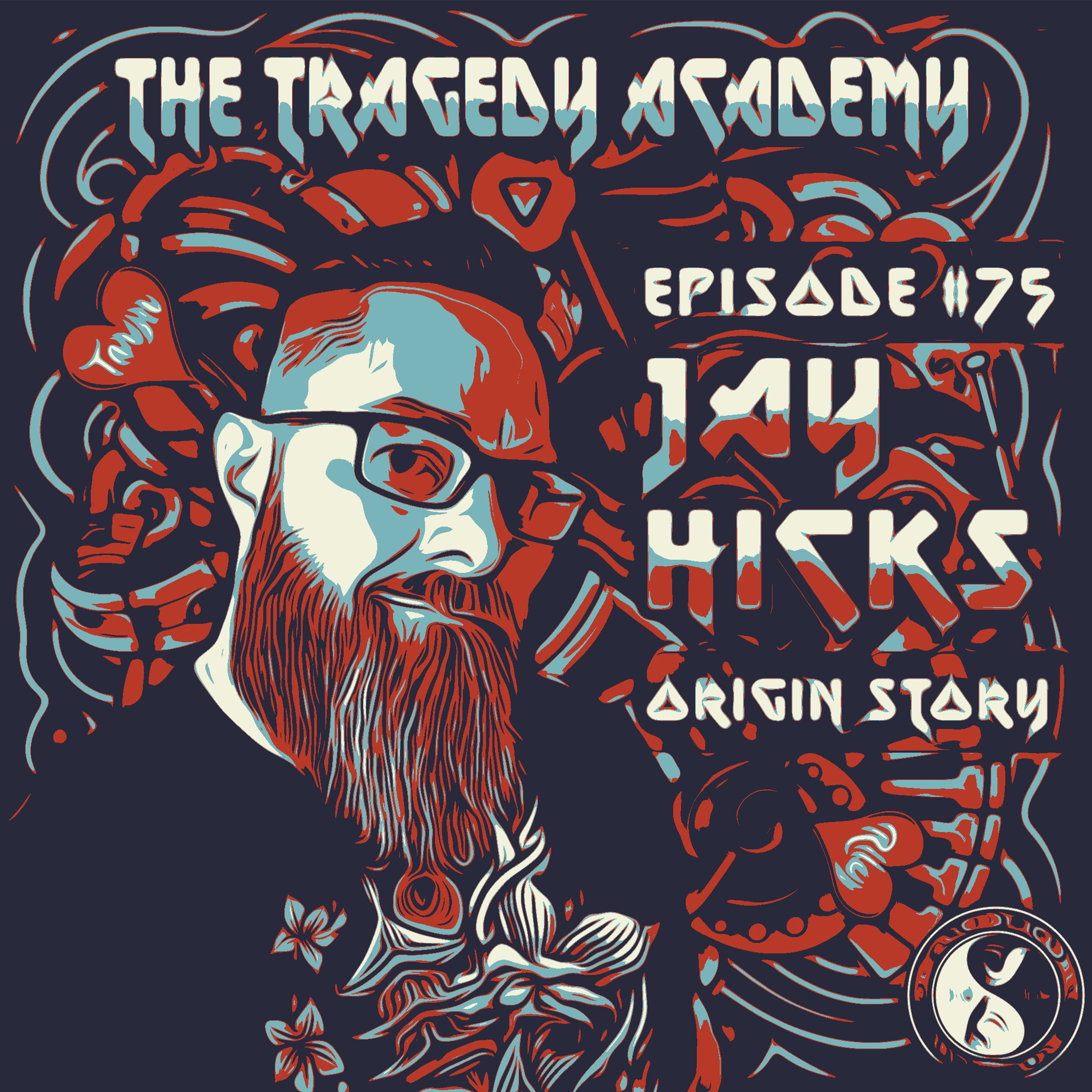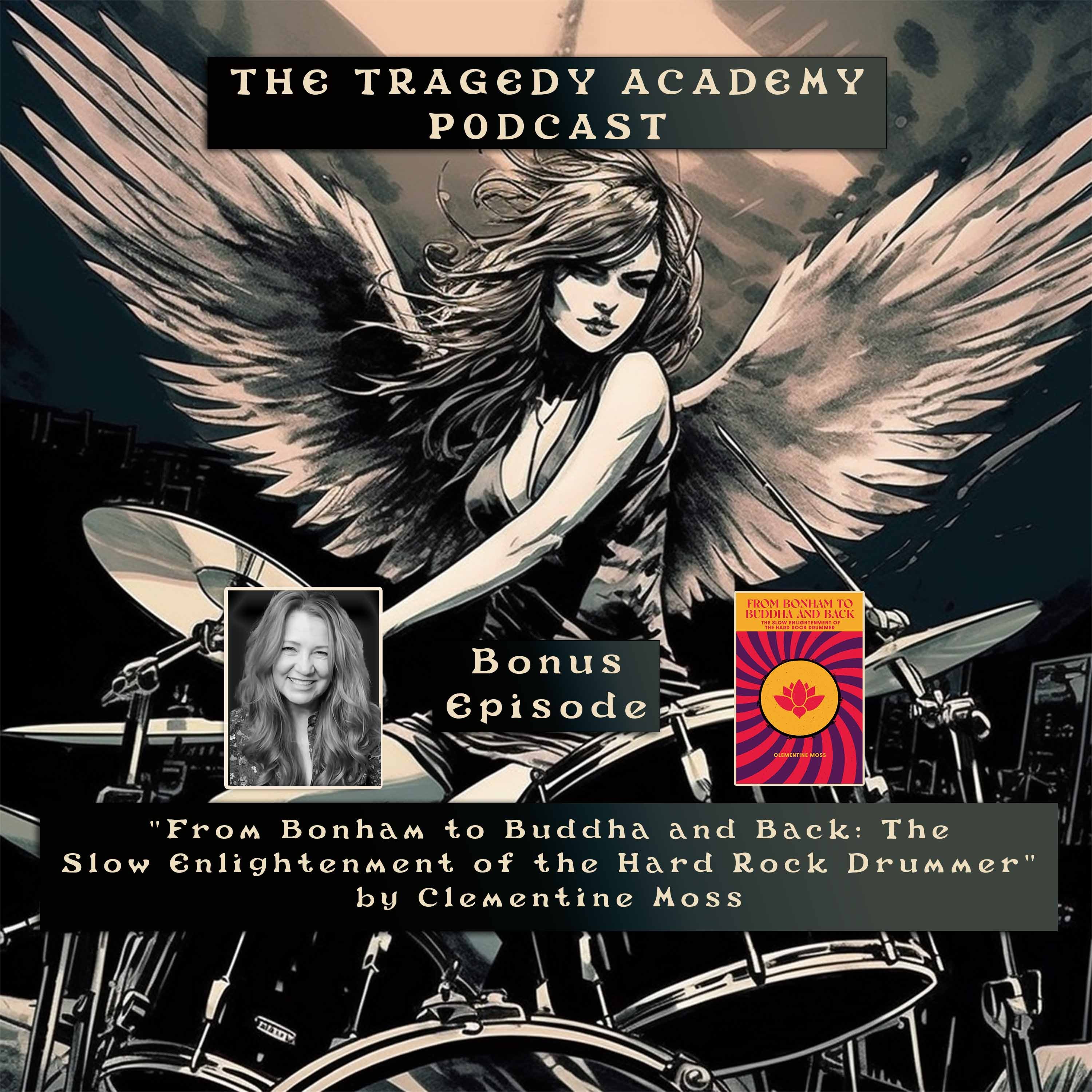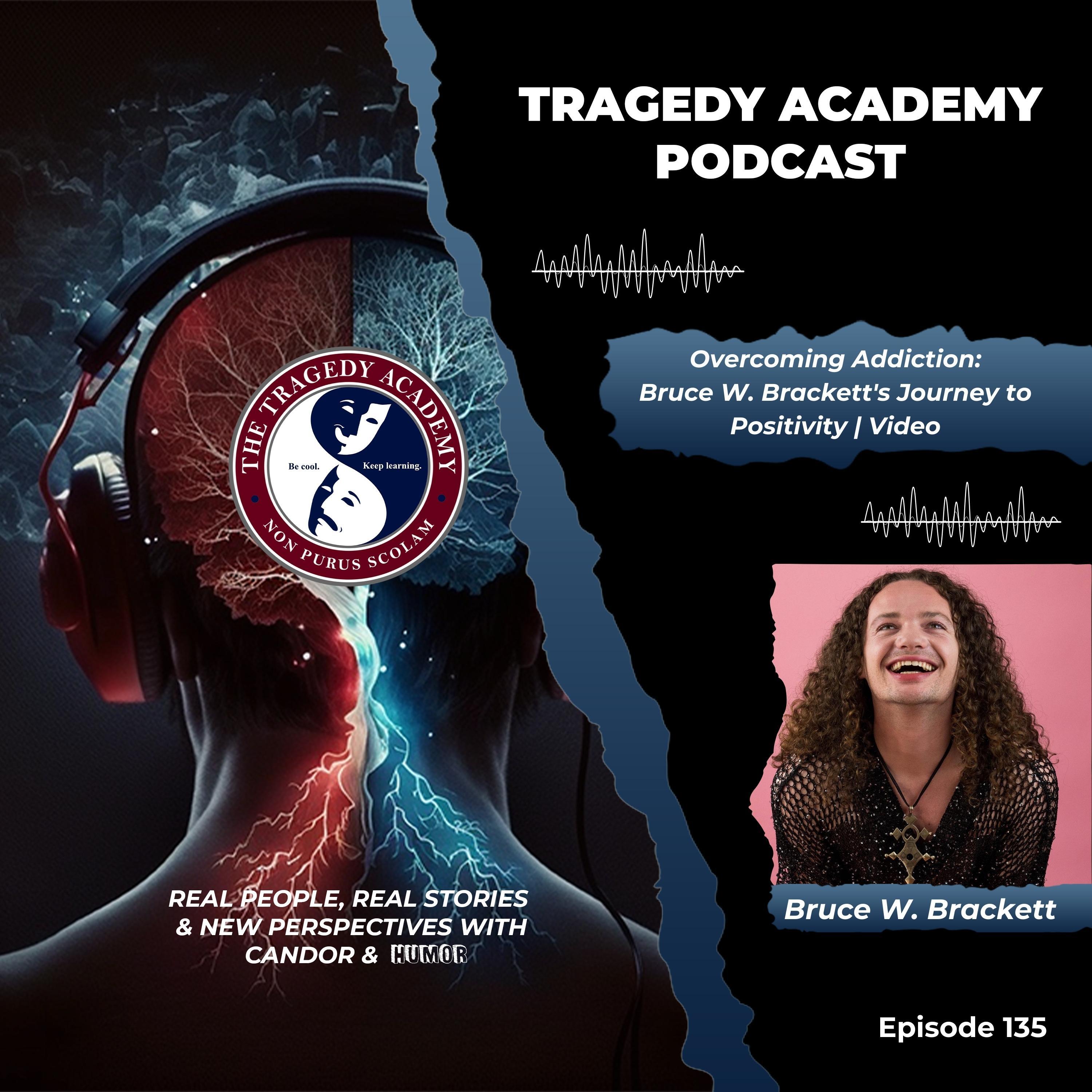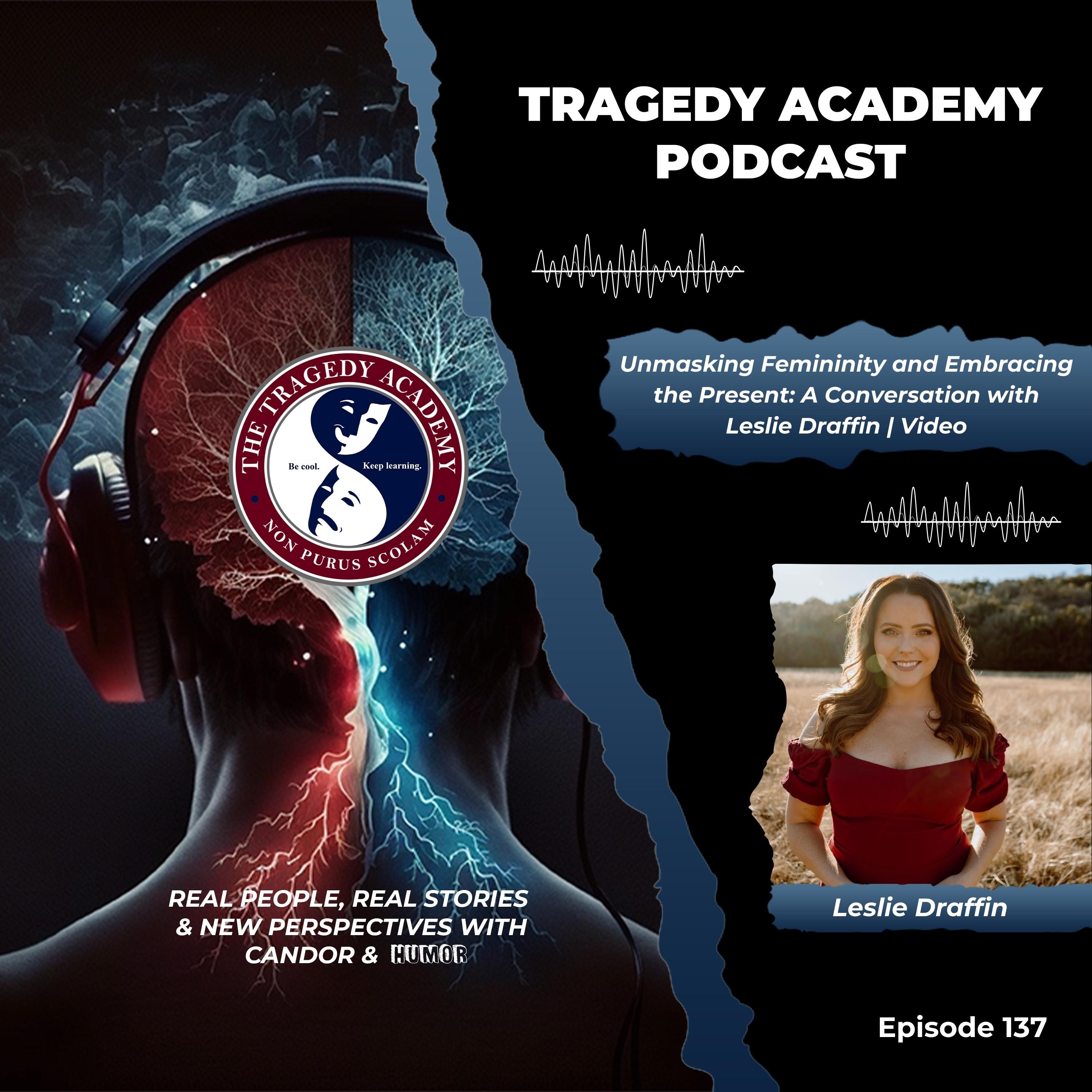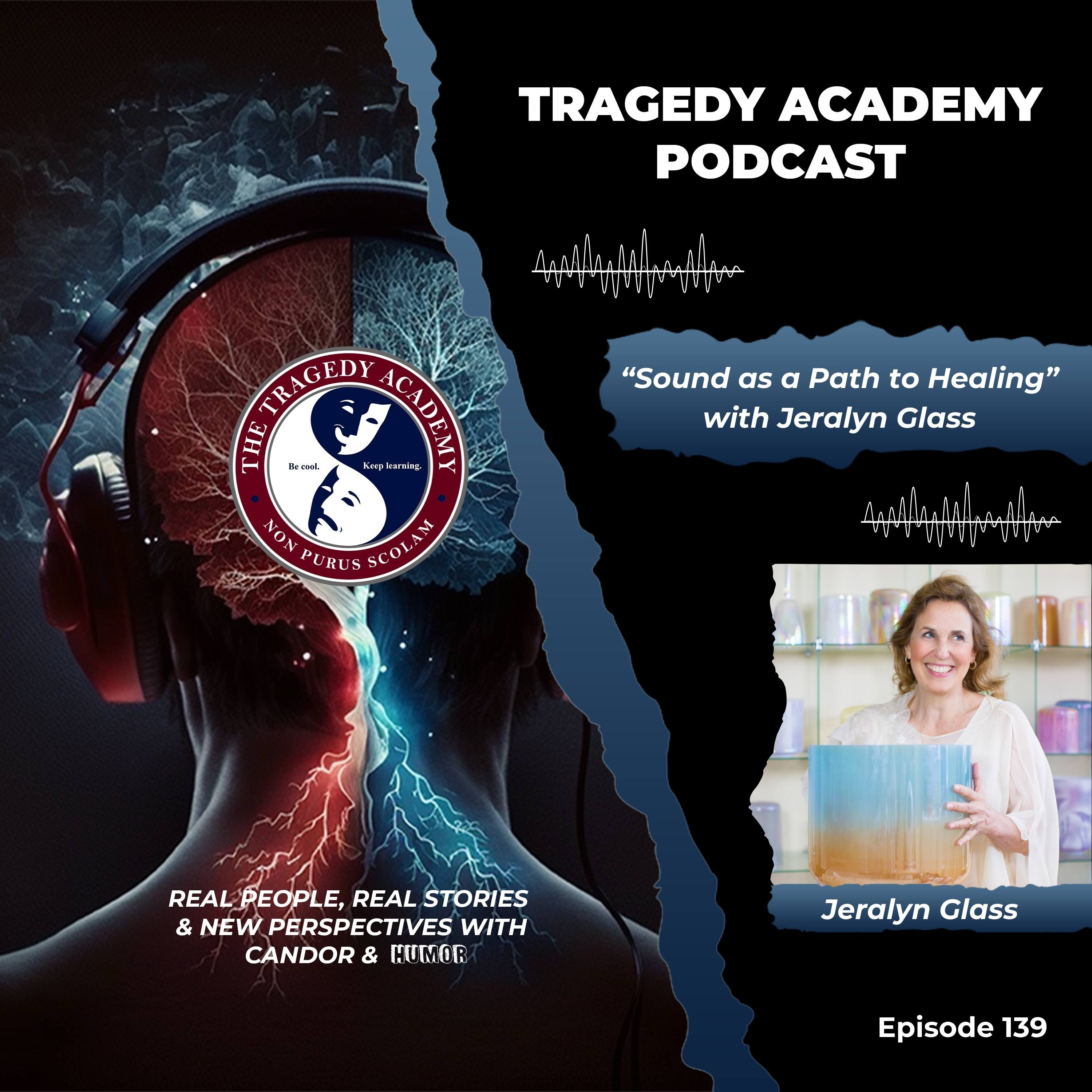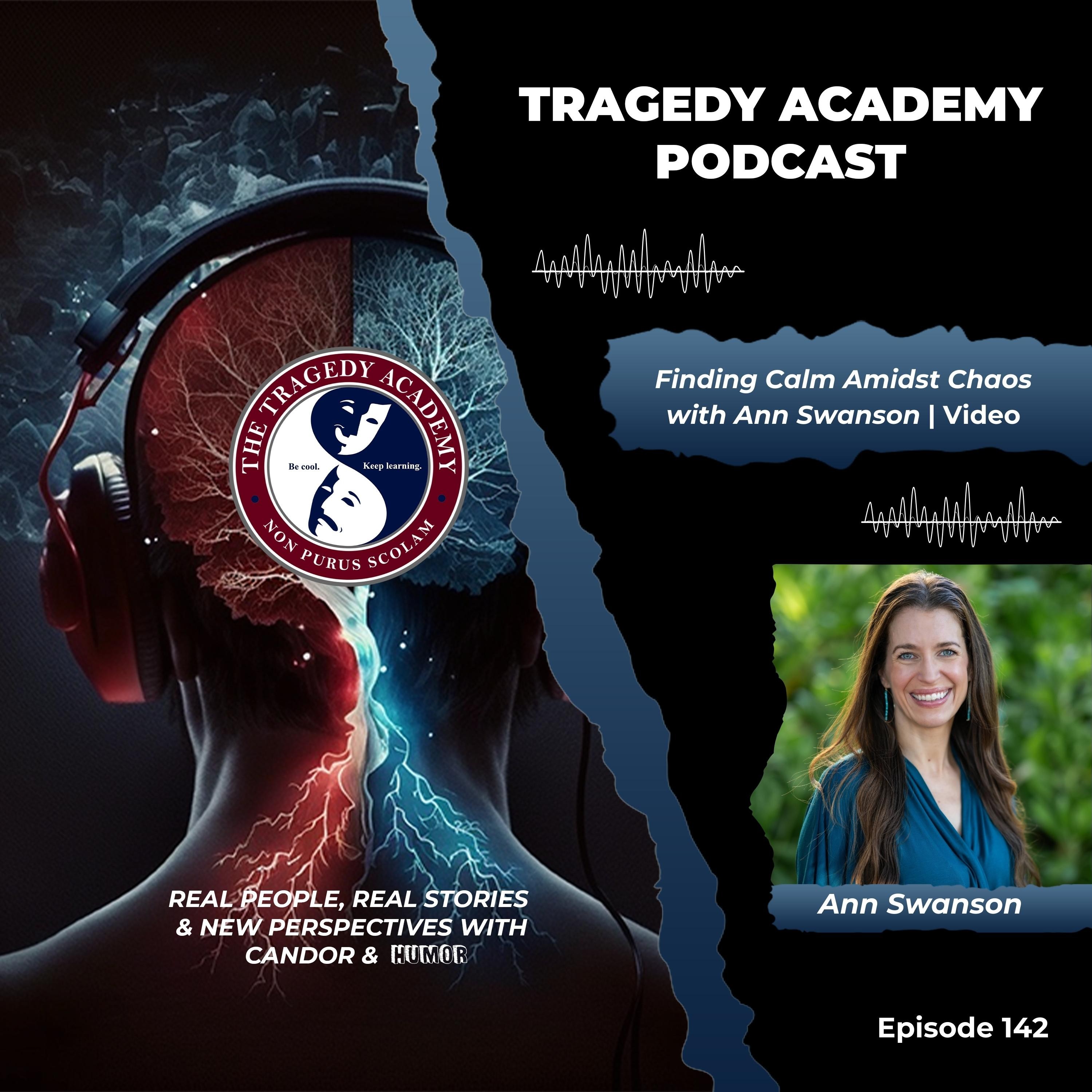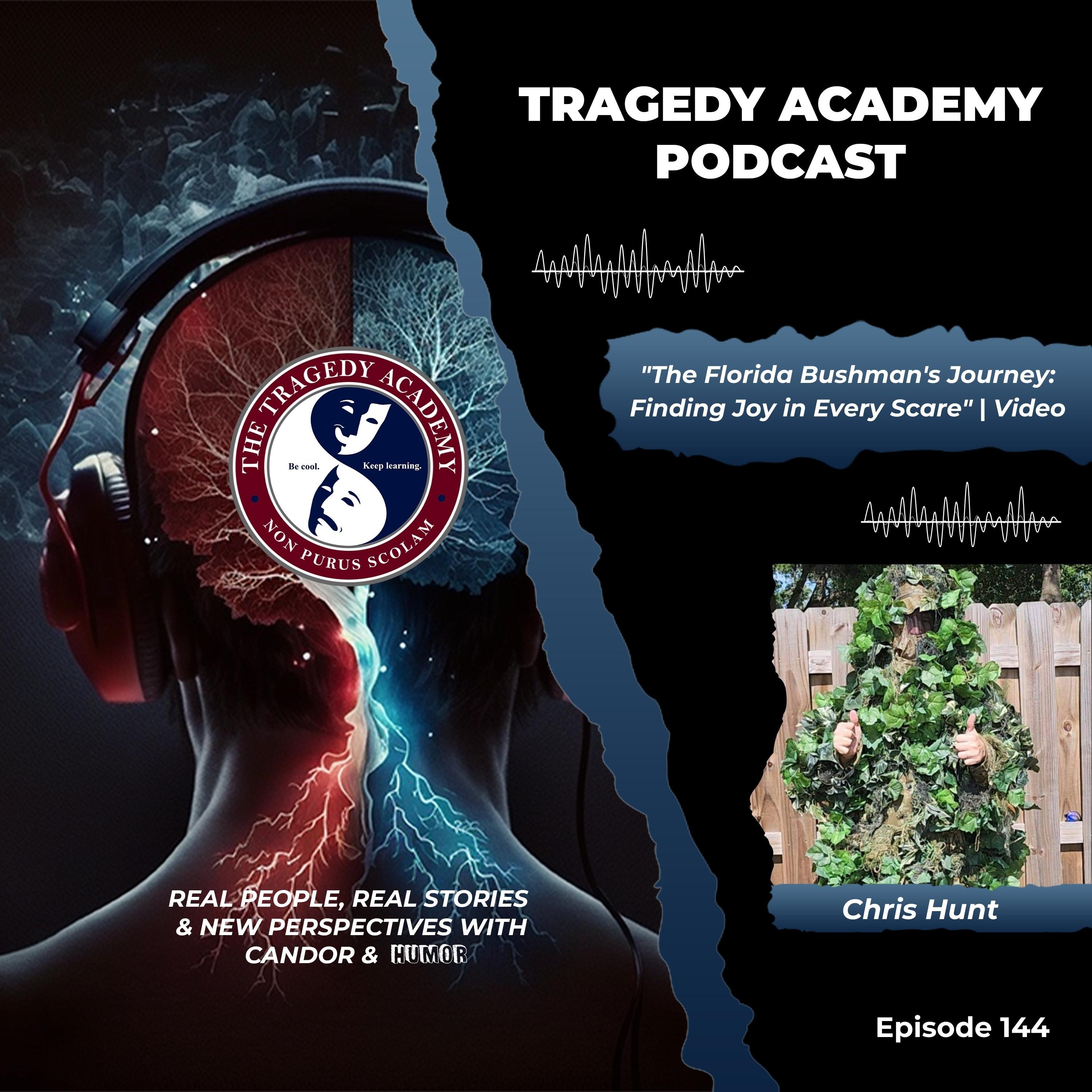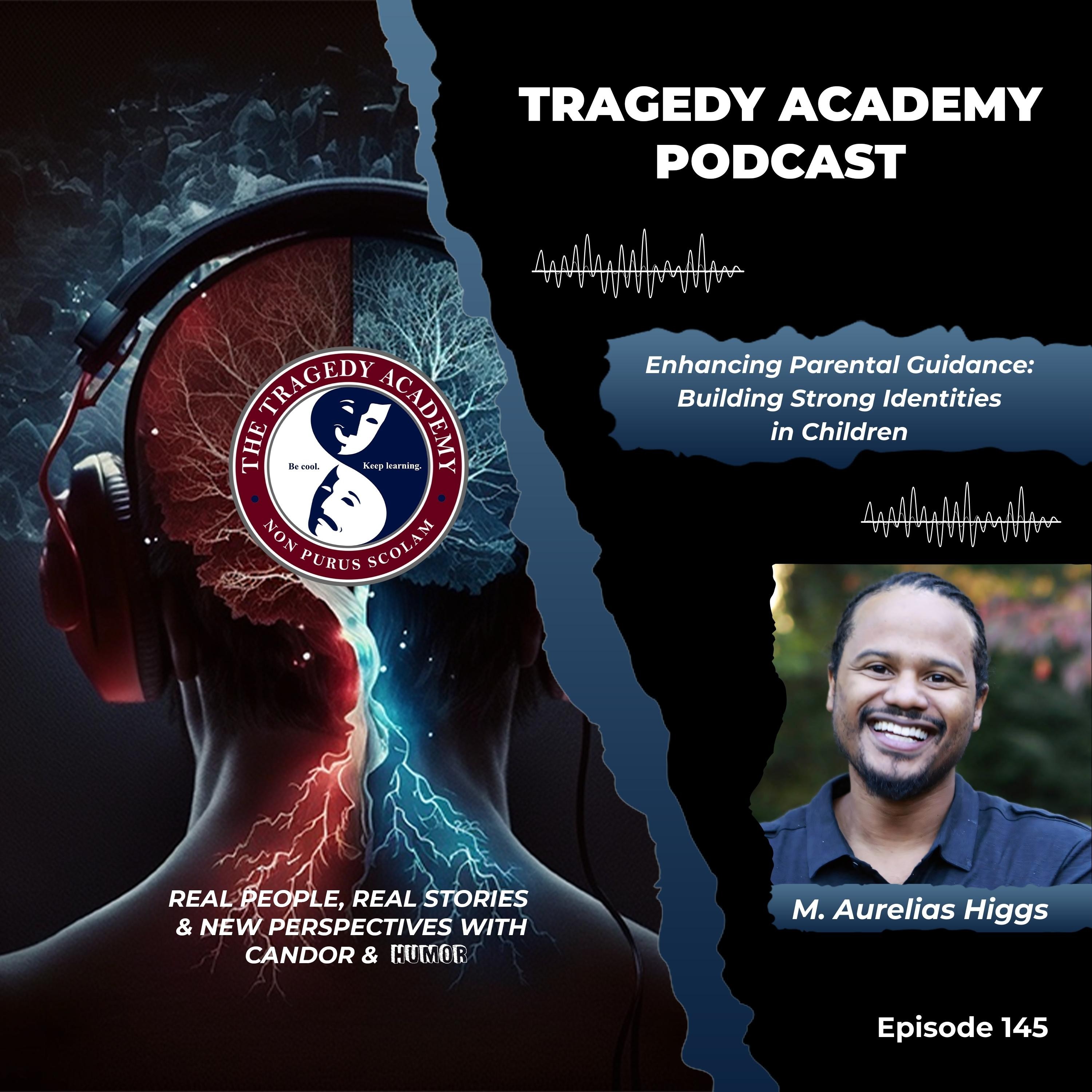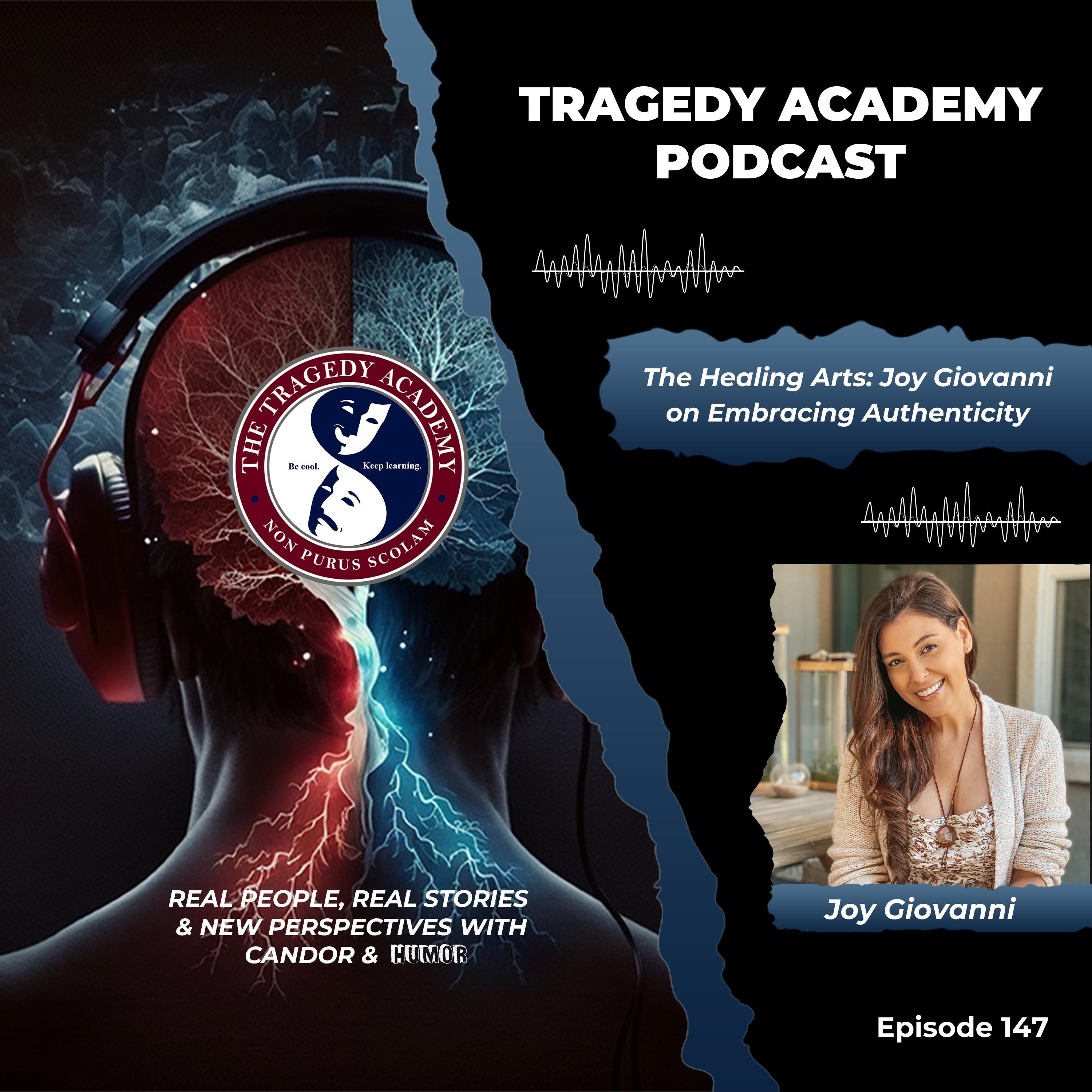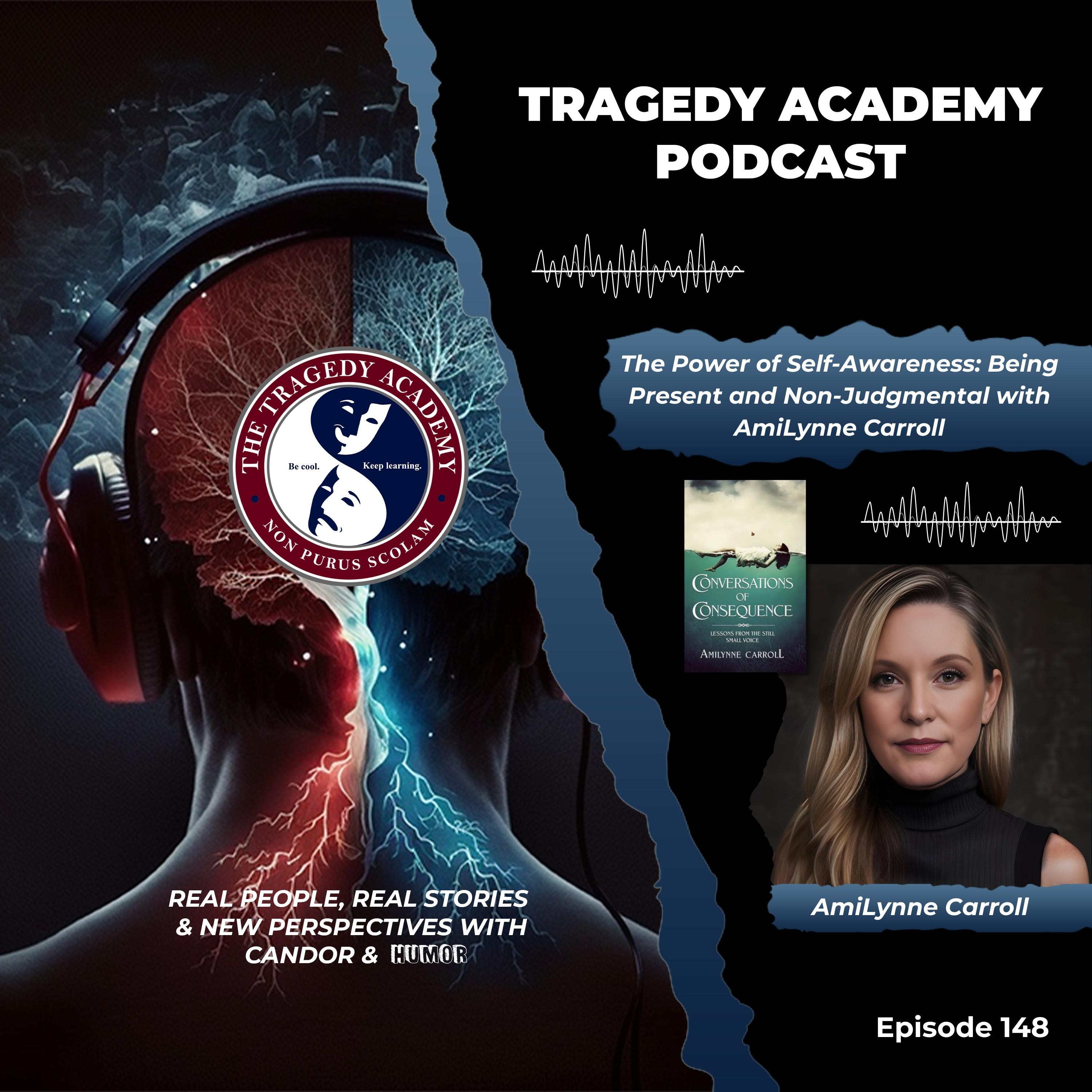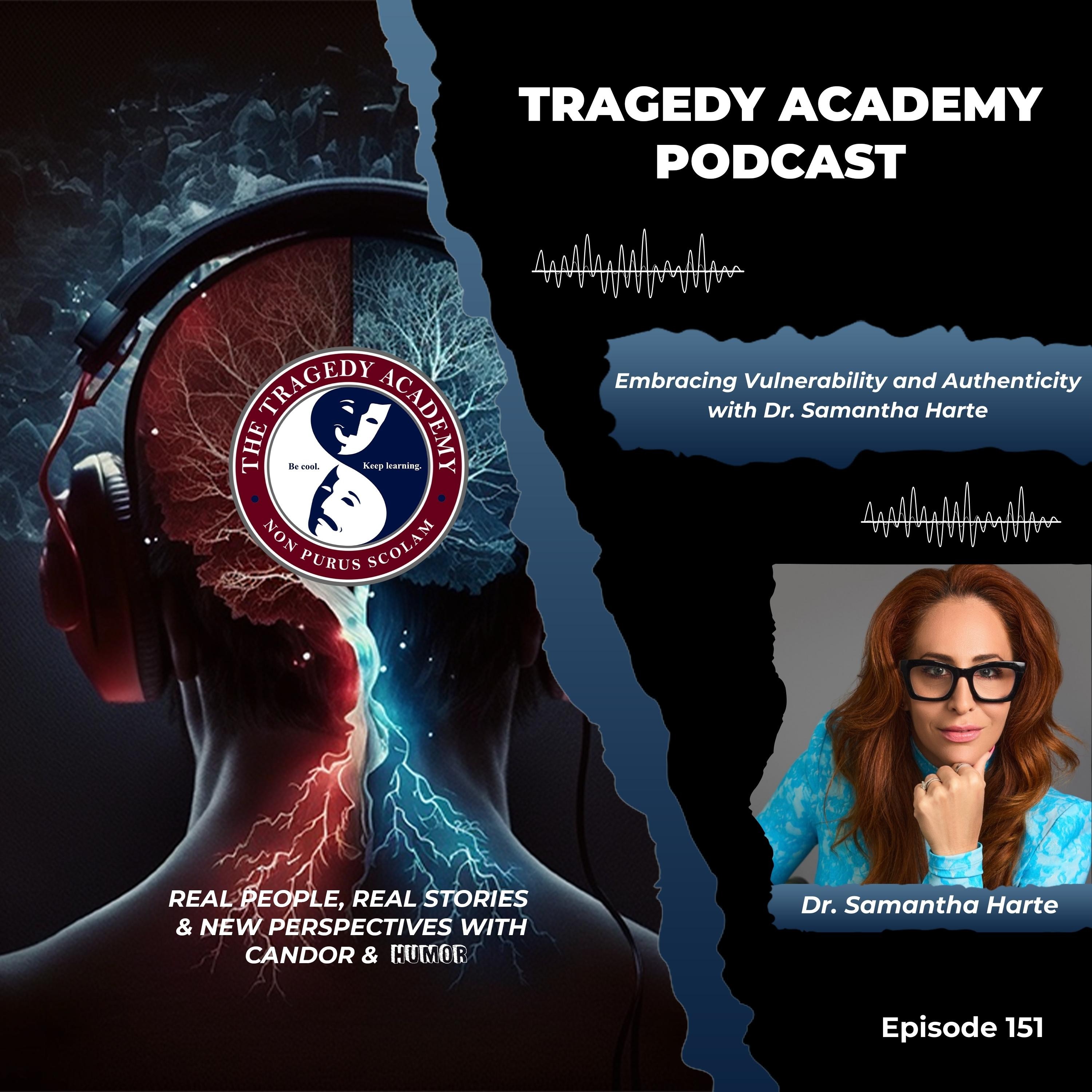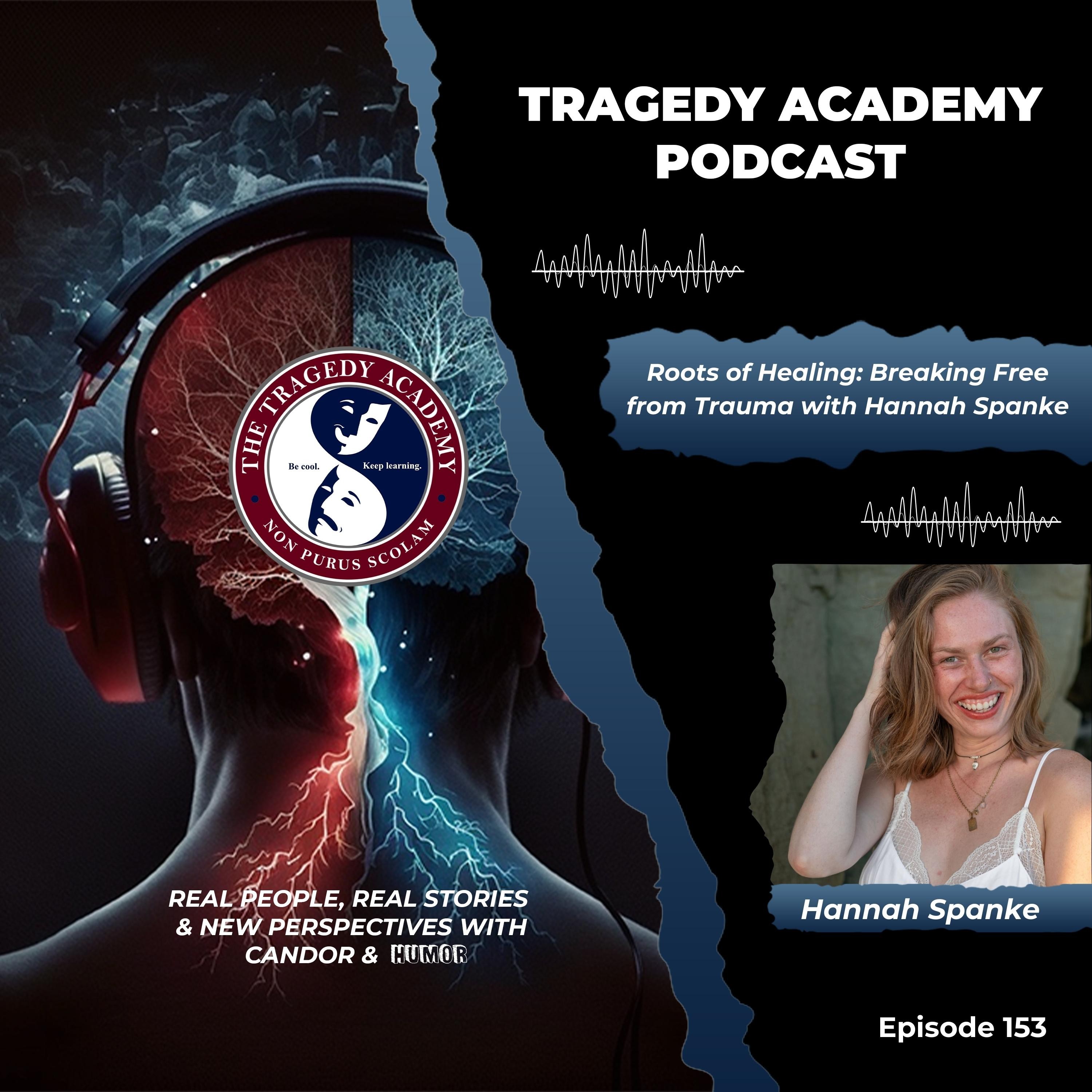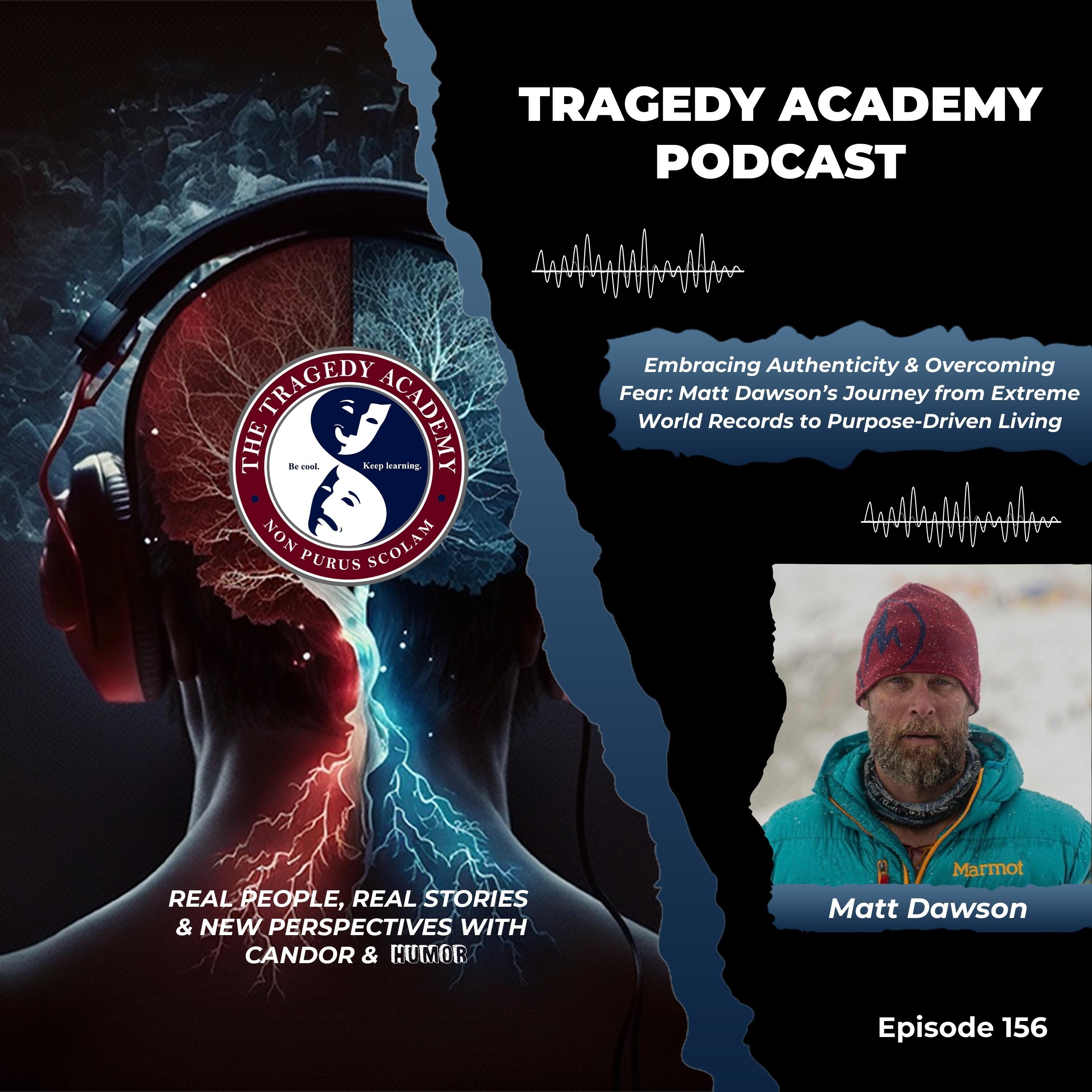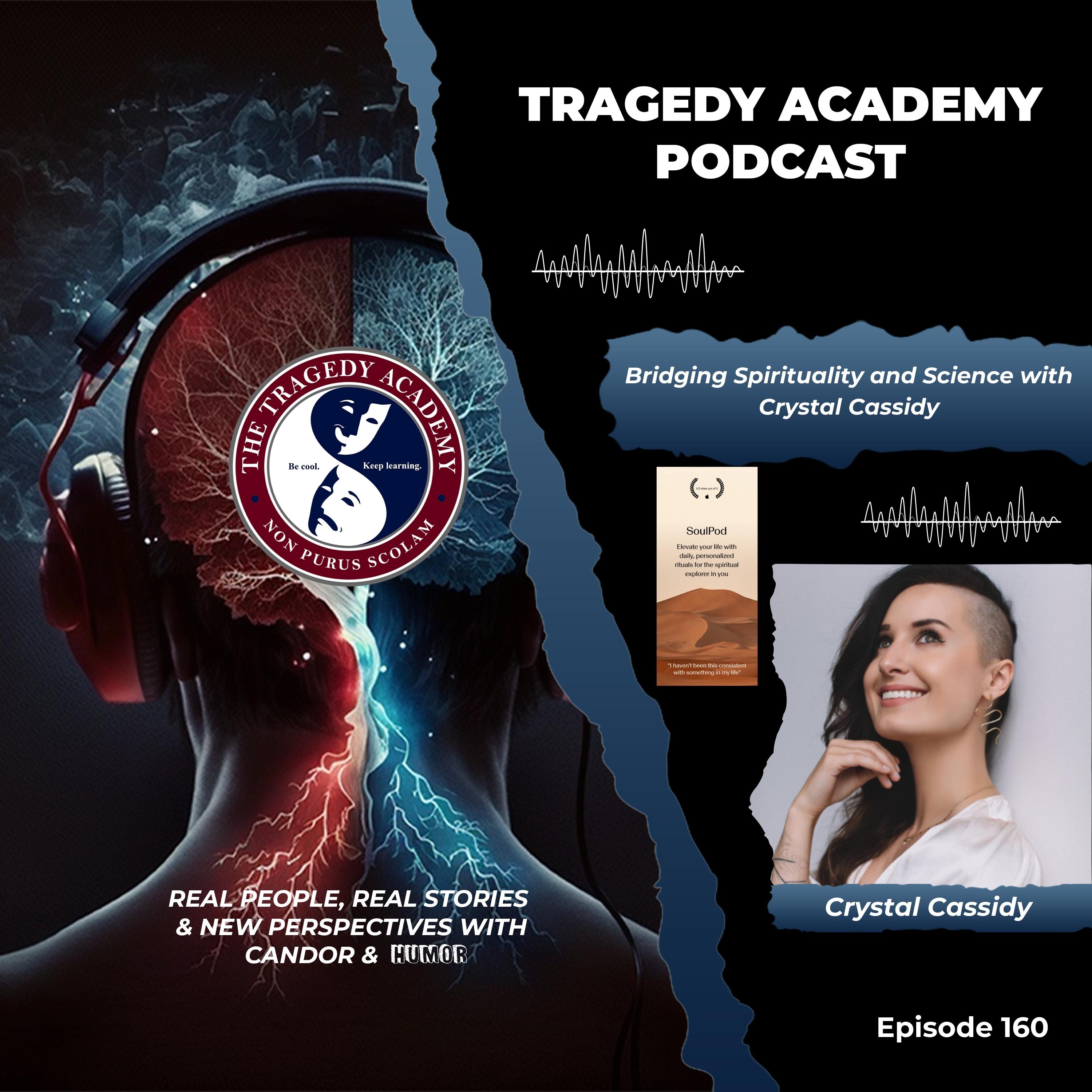Hakeem Javaid: Viewing Time Through the Lens of Extuity

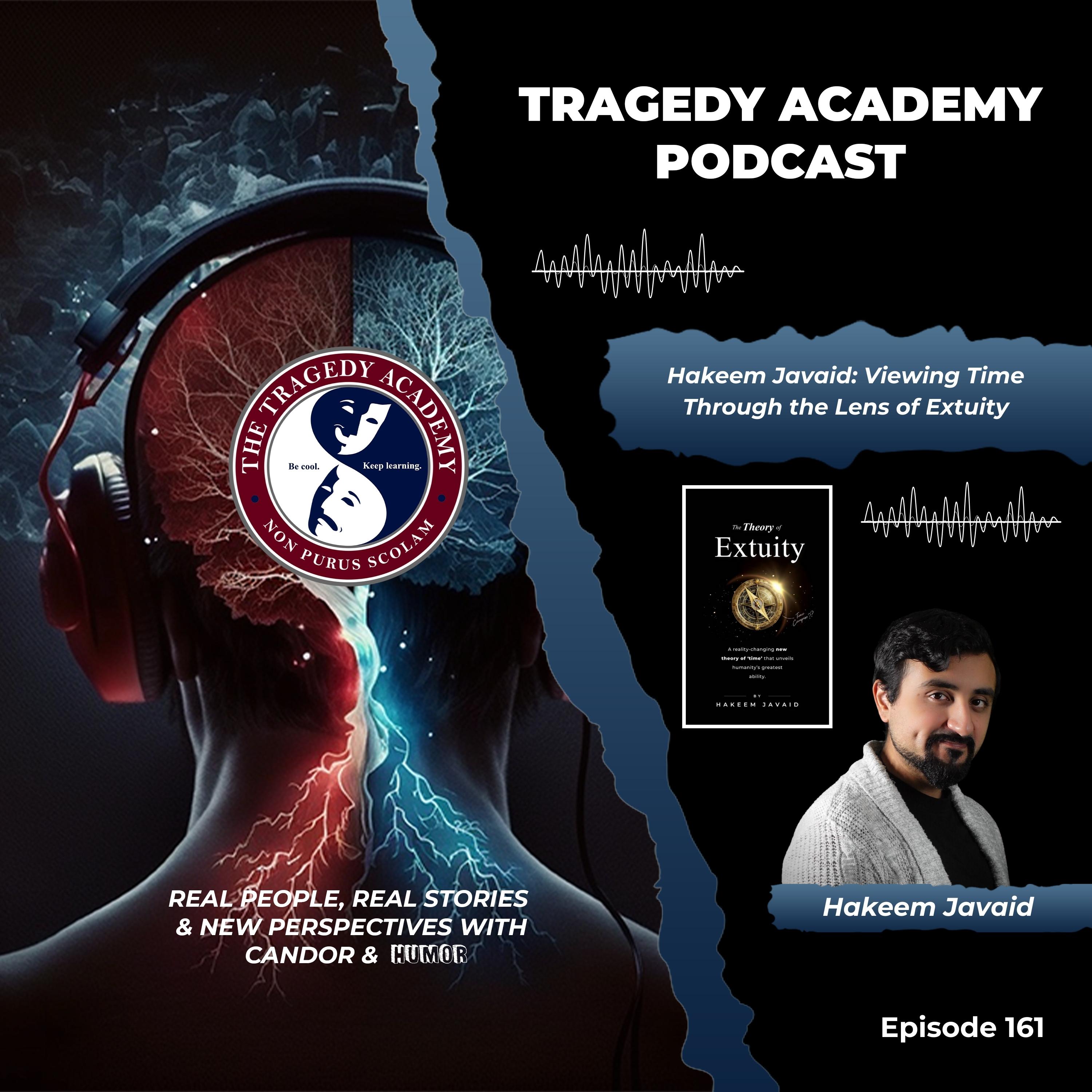
In this powerful episode of The Tragedy Academy Podcast, host Jay Hicks sits down with the inspiring Hakeem Javaid to explore how personal growth, resilience, and the nature of time itself intersect. They dive deep into Hakeem’s transformative journey and his groundbreaking ideas about time as energy, self-limiting beliefs, and the lenses through which we view the world. Prepare for a mind-expanding conversation that challenges conventional wisdom while offering practical insights for your journey. 🎙️
Summary:
From breaking physical barriers to uncovering deep truths about time and energy, Hakeem shares how a life-changing injury led him to redefine his perspective on existence. 💡 His story is a testament to the power of resilience and curiosity in overcoming challenges and embracing personal authenticity.
Jay and Hakeem delve into the concept of time dilation and how the flow of energy relates to our perception of reality. Whether discussing quantum physics, hyper-focus, or how human connections shape our journey, their conversation offers a fascinating mix of science, spirituality, and self-discovery.
Tune in for thought-provoking moments and actionable advice on seeing past your limitations, breaking through mental barriers, and stepping into your infinite potential. 🌟
Key Takeaways:
🧠 [00:23:44] Time as energy: How breaking an arm became a gateway to deeper understanding.
🔄 [00:31:03] Aphantasia and perspectives: Why the theater of the mind shapes our unique realities.
✨ [00:45:48] Time dilation explained: How physics supports the elastic nature of our perceptions.
🌍 [00:53:30] Timeless connections: What tribes can teach us about bridging the gap between birth and death.
🌌 [01:05:30] Looking forward: Why redefining memory and future possibilities matters.
Guest Bio:
Hakeem is a trailblazing thinker, entrepreneur, and author of the book Extuity. His groundbreaking work challenges how we perceive time, offering a fresh lens on the human experience. From building innovative tech to unraveling the mysteries of consciousness, Hakeem’s multifaceted journey bridges science, spirituality, and personal growth.
🌟 Join the journey of discovery!
Subscribe to The Tragedy Academy Podcast on your favorite platform, leave us a ⭐⭐⭐⭐⭐ review, and share this episode with friends ready to challenge their perceptions and embrace infinite possibilities.
💡 Be cool and keep learning.
Dive deeper into Hakeem’s revolutionary ideas by grabbing his book Extuity, available on Amazon and Extuity.com. Follow his journey and explore his groundbreaking work in tech and human consciousness.
🌟 Unlock your potential and break free from limiting beliefs.
Conclusion:
Hakeem’s story reminds us that the barriers we face can be doorways to transformation. Tune in next week for another compelling episode of The Tragedy Academy Podcast. 🎧
💡 Be cool and keep learning
📲 Learn More: The Tragedy Academy
🎧 Podcasting Made Easy: Build your site with Podpage
📲 Upgrade Your Recording: Riverside.FM
👕 Get the Gear: Loved Jay’s t-shirt? Grab it at Into the AM
📘 Expand Your Mind: Check out our recommended reads
✅ Subscribe: YouTube Channel
📱 Follow Us:
Instagram: @tragedyacademystudios
Facebook: @Tragedyacademystudios
Twitter: @TragedyAcademyStudios
TikTok: @tragedyacademystudios
💖 Support Us: Please donate via PayPal or Buy Me a Coffee to help us continue providing meaningful content.
The Tragedy Academy is a show created to bridge societal divides in a judgment-free zone using candor and humor.
Be cool. Keep Learning.
[00:00:35] Jay: My name
[00:00:36] Jay: is Jay, and we are joined today by Hakeem Javed. How are you doing today, Hakeem?
[00:00:41] Hakeem: I'm very well, thank you, Jay. How's yourself
[00:00:44] Hakeem: doing?
[00:00:44] Jay: I'm doing great, man. I always like to say, it's a good day to be on
[00:00:47] Jay: this side of the dirt.
[00:00:48] Jay: right?
[00:00:51] Hakeem: Yeah. Yeah, you, can say that
[00:00:53] Hakeem: again.
[00:00:54] Jay: it's all about perspective. I'm sure there are other people that have a much
[00:00:58] Jay: different
[00:00:58] Jay: perspective as to what going a good time is
[00:01:02] Hakeem: Oh, I'm totally with you. I had a quote, a quote the other day, someone said, woke up this morning, so I'm winning.
[00:01:09] Hakeem: And I'm like, yeah, a hundred percent.
[00:01:11] Jay: But but it's not wrong I was sitting today just thinking about the Today is the election. It's not going to get released and we don't talk politics here But I was thinking today. I was like we're exercising democracy and freedom today right? I love [00:01:30] that. It's that opportunity to bring together voices and have this
[00:01:35] Jay: multicultural Understanding of what we want to see going
[00:01:40] Jay: forward.
[00:01:41] Jay: So I think there's a lot to happen today But
[00:01:47] Jay: with someone like yourself we could say that maybe it already happened
[00:01:51] Hakeem: Potentially. Yes.
[00:01:56] Jay: So just to give everybody a little bit of background, why don't you tell everybody,
[00:02:00] Jay: how you started, into coding your tech background, how young you were,
[00:02:05] Jay: so everybody can get an idea for the genius behind the thought
[00:02:10] Jay: process you have today.
[00:02:12] Hakeem: Cool. All right. I loved arts as a kid. Like I absolutely loved it. I don't know if you remember paint program on the old Microsoft,
[00:02:21] Hakeem: OS, I lived on it as a kid and, I just fell in love with the monitor, with the digital screen. I see it as, A digital [00:02:30] canvas, like a canvas without any boundaries.
[00:02:32] Hakeem: And my wish, my heart which is on this journey to just mastering this canvas to
[00:02:39] Hakeem: the kind of, you know, you know how a photo captures a thousand words it said, right?
[00:02:44] Hakeem: I saw the screen as They They used to say, yeah, And then, a video is like infinite photos and one, but like an interactive image, which is what a screen is.
[00:02:54] Hakeem: Wow. you can't even capture that in words. so I think I was 11 when, the idea struck me. I grew up, and I'm sure you did too, Like you need to, we're told that you need to get a degree to do certain things in life, get a job, need to follow certain un certain steps. And I I had this belief that in order for me to be able to code and build software and master this screen, I had to get a degree.
[00:03:19] Hakeem: And then I was like, do I really need to? there's this whole web here. Let me just Google search how to code or, where can I learn how to code?
[00:03:29] Jay: Thank you. [00:03:30]
[00:03:31] Hakeem: And, there's this one website that came up. Oh my God. If I ever meet this guy, I need to, give him the biggest hug in the world. It's called Dave's site.
[00:03:37] Hakeem: And this is back in This is back in the early two thousands, so you know, stuff like Code Academy
[00:03:43] Hakeem: and that they weren't around, like it was so hard to find a resource to
[00:03:45] Hakeem: learn how to code. This guy had built this really
[00:03:49] Jay: Oh, yeah. Coders were yetis
[00:03:50] Hakeem: you to,
[00:03:51] Jay: You didn't know if they existed or not. I came out of the
[00:03:55] Jay: way.
[00:03:55] Hakeem: a hundred
[00:03:56] Jay: a coder. He's so smart.
[00:03:58] Jay: Like, Nobody knew back then.
[00:04:00] Jay: So you were
[00:04:01] Jay: a pioneer hunting through the web, trying to find that connection to one other person with the
[00:04:05] Jay: understanding or the capability to share the knowledge.
[00:04:09] Jay: That's,
[00:04:10] Hakeem: exactly. Yeah.
[00:04:12] Jay: consciousness that we have, on paper, that where
[00:04:15] Jay: you can see live time that we're able to communicate knowledge, thoughts,
[00:04:21] Jay: and intuition, all sorts of things through Technology
[00:04:26] Jay: and you're
[00:04:26] Jay: bridging a gap right out the gate 12 13 years old [00:04:30] I was getting in trouble in church for making
[00:04:32] Jay: fart noises behind the guy in front of me who was like 70 Over and over again and not being able to stop laughing.
[00:04:38] Jay: That's what I was doing at 12. There was no coding in my world
[00:04:43] Hakeem: I still saw it as a game, so I saw like coding and art as like playing with Lego. Like you can pull these things together and you can make cool stuff. I was like, yeah, I want to do
[00:04:51] Jay: Digital Legos.
[00:04:53] Hakeem: yeah,
[00:04:53] Hakeem: exactly. I honestly describe it to this day as coding is an art, but it's like playing with Lego.
[00:04:58] Jay: I say
[00:04:59] Hakeem: you can create.
[00:05:00] Jay: Do you
[00:05:00] Hakeem: Oh my God.
[00:05:02] Jay: Are you one of
[00:05:02] Jay: the smart people out there? You say you play lego. It's not legos. It's lego is the
[00:05:08] Jay: name
[00:05:08] Hakeem: Oh, is it?
[00:05:09] Jay: You're saying it
[00:05:10] Jay: correctly. You're
[00:05:11] Hakeem: say Lego. Yeah. Oh, cool.
[00:05:12] Hakeem: Okay.
[00:05:13] Jay: explained to people the
[00:05:14] Jay: same way about audio when I first started
[00:05:16] Jay: working in music, I was like, you know
[00:05:18] Hakeem: Yeah. Yeah.
[00:05:19] Jay: This is just layers. It's just legos. I'm building
[00:05:24] Jay: One piece on top of another instrument and putting it all together until it [00:05:30] creates one Wall of art right that is a finished sound but it's still legos
[00:05:36] Hakeem: Yes. It's still Lego. Yeah,
[00:05:38] Hakeem: 100%. didn't actually know there was a Gymsuit Lego and Legos, but there we
[00:05:42] Hakeem: go.
[00:05:43] Jay: now, let's tell everybody where you're located or where you're
[00:05:45] Hakeem: I'm in the United Kingdom, England, in Birmingham. If you're familiar with the
[00:05:49] Hakeem: city.
[00:05:50] Jay: leave it to the United Kingdom to say Lego correctly. I, knew
[00:05:56] Jay: this
[00:05:56] Hakeem: Oh, you say
[00:05:57] Jay: yeah, it's funny. I, You're going to look it up later, but we say
[00:06:01] Jay: Legos.
[00:06:02] Jay: We never say Lego.
[00:06:05] Hakeem: Wait, so what's correct one?
[00:06:06] Hakeem: What's the correct
[00:06:07] Jay: What you're saying. There's no S on the
[00:06:09] Jay: end of it.
[00:06:10] Jay: It's
[00:06:10] Hakeem: But that's funny because I have a mate over in New York and he rips me apart for saying maps instead of of maths. Because math is
[00:06:18] Hakeem: technically the correct term, but we in the UK say maths with the S in the end. So I don't know, like a hit and miss in different
[00:06:24] Hakeem: words, I
[00:06:24] Jay: little idiosyncrasies, that, that happen over 200 years, you hop a pond and [00:06:30] then what happens, you start, saying Legos and, adding R's to wash.
[00:06:39] Jay: So,
[00:06:40] Hakeem: Oh,
[00:06:40] Hakeem: yeah.
[00:06:41] Jay: man, 12, 13 years old, he's discovered that
[00:06:45] Jay: the digital world is his canvas, right? You're sitting there. You've got this newfound art. Where do you go from there?
[00:06:55] Hakeem: All right. the first thing I do is I take this coding, basic coding knowledge, and I want to build a website, the most basic thing. And I remember what it was. It was just like this. I had this bright green background and images of games minifig and you click these images and then go to, the specific game on miniflip.
[00:07:11] Hakeem: com. Honestly, it's the worst looking website ever, but it's the, by far the website I've ever made because of what it offers. because of what it represented, It represented me breaking through this barrier of believing something was impossible and boom, like I proved that it was possible to do something that I was told I couldn't do.
[00:07:28] Hakeem: And from there, I was just an [00:07:30] avalanche. Like I went from this really crappy looking website to learning how to, design it better. So when the graphic design, and then from there I was able to build decent websites. So I started business at 14 building websites for small businesses around Birmingham. And I was like, Okay, like not only doing something that I was told I need to get a degree for, but I'm also making money without a job. I'm like, this is just what we've been taught about reality just isn't what it is.
[00:07:53] Jay: are no
[00:07:54] Hakeem: taught that there's so many limitations. Yeah, there are no rules.
[00:07:56] Hakeem: Like it
[00:07:58] Hakeem: is ours write. The rulebook is ours write and it's all about self belief. It all comes back
[00:08:02] Hakeem: to self
[00:08:02] Hakeem: belief.
[00:08:03] Jay: It truly does having that internal narrative that supports who you are Authenticity often Authentically is what's most important right because then you can act on things like Passion in the moment.
[00:08:17] Jay: You don't have to second guess what somebody's going to think of you for being the kid working with pixels
[00:08:24] Jay: versus pencils, You have the ability that was damn good right there, [00:08:30] right? But you had that ability to be free enough within yourself to take that step into an imaginative, an imaginative world. right? I tell people all the time, science fiction comes true.
[00:08:44] Jay: because it's the least inhibited thought of creativity that we have, we don't give limits to it.
[00:08:49] Jay: So we go out and get it all the time. Everything on Star Trek comes true. Everything we fly around comes true. Like it comes true because we didn't say it couldn't.
[00:08:58] Jay: In fact,
[00:08:58] Jay: we all collectively believed when we were looking at the screen that it was possible because of the narrative told to get it there. Science fiction carries a big, weight on its shoulders and
[00:09:09] Jay: comedy.
[00:09:10] Hakeem: absolutely love that. I've never heard that before. That make, oh, I absolutely love that example. If we applied that to everyday life, oh my
[00:09:17] Jay: think about
[00:09:18] Hakeem: to our inner, beliefs as well, oh my gosh.
[00:09:21] Jay: right? We suspend all judgment and limitation throw it to the wind Make shit up and next thing, we're running through [00:09:30] meta world with cheetah skins on Sweating, inside of a building on a treadmill doing circles, playing call of duty like all sorts of crazy shit Going on but it wouldn't have happened if we didn't have a hood On a screen, in a movie
[00:09:47] Jay: to give you the idea that you could have a separate set of information in front of you that you can see through all sorts of thoughts like that were required.
[00:09:56] Jay: And those are your visionaries. They're your imaginations. You have science all day long, but if you don't have George Lucas on the other side, you don't
[00:10:05] Jay: get it. You don't get the toys that come
[00:10:08] Jay: with the science,
[00:10:10] Hakeem: There is a great quote by Steve Jobs. and I'm gonna pull it up really quickly. it's one of the, one of the best quotes and it captures everything we've just mentioned. And it is, give me one second. It is right here. So he says, and I know you've heard this before. He says, here's to the crazy ones, the [00:10:30] misfits, the rebels, the troublemakers, the round pegs in the square holes, the ones who see things differently.
[00:10:36] Hakeem: They're not fond of rules and they have no respect for the status quo. You can quote disagree with them, glorify them, or vilify them. But the only thing you can't do is ignore them because they change things. They push the human race forward. And while some may see them as the crazy ones, we see genius because the people who are crazy enough to think they can change the world are the ones who do.
[00:10:55] Hakeem: And I love that quote so
[00:10:57] Hakeem: much.
[00:10:58] Jay: that guy was a legit genius and a master of his reality
[00:11:07] Jay: Right,
[00:11:07] Hakeem: yeah.
[00:11:08] Hakeem: Oh,
[00:11:08] Jay: He did. He didn't have much of
[00:11:09] Jay: an outside care But he made sure that what was in his
[00:11:12] Jay: scope was always on point
[00:11:16] Hakeem: Yep. Yep. Yep. Yep. Yep. Yep. Yep.
[00:11:19] Jay: let's talk about you're making money.
[00:11:21] Jay: You're looking at this creamed spinach
[00:11:24] Jay: colored screen, And your website,
[00:11:29] Jay: it looks [00:11:30] like DOS and there's it's horrible. I know. So but you're having fun with it. You're seeing the ability for it to become bigger things. So you had an entrepreneurial, crossroads at a young age that allowed you
[00:11:46] Jay: to probably finance who you are now in different ways.
[00:11:51] Hakeem: Oh, big time. Yeah. Like even from those early projects did for small businesses, I even bringing up to a thousand pound as a 15 year old. I was like, whoa. Okay I can use this. So I started there. Purchasing these programs at the whole Adobe for example, and I started playing around with the video on a pretty professional level.
[00:12:08] Hakeem: the first ones were obviously over the top, then like way too many effects and all of that. But
[00:12:12] Jay: I totally know where
[00:12:13] Hakeem: it, the you practice. right? Yeah. Yeah. Yeah. again, what I did actually every summer in between school. I challenged myself learn a new skill and apply it there. And then, so it's not off the website.
[00:12:27] Hakeem: It's but design and then videos and then apps like an app for [00:12:30] a mobile phone. I remember creating this,
[00:12:32] Hakeem: I don't just remember that helicopter game. It was, I think it was a mini clip.
[00:12:35] Hakeem: You just happen and go up and and it just avoid the obstacles.
[00:12:39] Jay: bird thing. you
[00:12:40] Jay: have
[00:12:40] Hakeem: Yeah, very similar. So
[00:12:42] Jay: as a love above a certain height
[00:12:44] Jay: by the
[00:12:45] Hakeem: Yeah.
[00:12:45] Jay: you
[00:12:45] Jay: tap it. Oh geez.
[00:12:47] Jay: Addictive.
[00:12:48] Hakeem: to create a really unique game.
[00:12:51] Hakeem: and the one thing in me. App store back then was there was a lack of multiplayer games on the same screen. this is I was probably 17, 17 around this time. And I thought, what if I created a two player game? So you'd have the phone in front of you and the person opposite you would be seeing obviously the screen upside down.
[00:13:08] Hakeem: So what I did was I created this helicopter game, but a two player version, and you'd have two different helicopters on the screen, but they'd be inverted. So on my side, I'd see the helicopter my way. And then so they see the helicopter their way. And we'd tap, have their own
[00:13:20] Hakeem: we'd have our own tap. Areas of the screen and it just focus multiplayer game and I put it out for three and it did really I was like,
[00:13:26] Jay: That's
[00:13:26] Hakeem: this is interesting
[00:13:28] Jay: My, my brother in [00:13:30] law, he's, a, he's an engineer works in solar. And, one of those people that you drop toothpicks and he counts them in seconds, like rain, man, he sits in front of Excel. Like
[00:13:42] Jay: when I finished some, of my college work, he came in and looked at my finance course.
[00:13:46] Jay: He sat down in front of my Excel spreadsheet and was like running through pages of, without touching a mouse. cutting you know when you know that you're in a different world of capability, when I tell you, I learned this, I knew that I was a chimp with a rock and a monitor. The first time I started working with my counterparts when I was a solution architect in India, when I was sitting down with them and those jokers were right in front of the computer, manipulating data, like nobody's business in Excel, pivot cables, formulas.
[00:14:20] Jay: Let me grab this, do that, mouse. Could have sat there and held a coffee. It did nothing and I was like, I was just looking at the screen I was like [00:14:30] gonna go home now Like I feel like i'm all proud of my pivot tables
[00:14:36] Hakeem: I know exactly what it means Mike. My eldest brother is a CFO, right? He's this fancy finance director. And when he's on Excel, oh my God, his hands are flying over the keyboard. And it's a tap, I'm like, holy crap. What did you just do? Like, how do you even know what you're doing? hands are literally
[00:14:50] Hakeem: flying
[00:14:50] Jay: the file
[00:14:51] Jay: menu's dropping shit saving while It's calculating and then there's like background stuff going on I'm looking down at the bottom. There's extra tabs that are going on What is going
[00:15:02] Jay: on?
[00:15:03] Hakeem: it's mad, isn't it?
[00:15:04] Jay: drinking like A chai at the same time! holy
[00:15:09] Jay: crap!
[00:15:10] Hakeem: I think this goes back to like when you remove these. Beliefs of limitations, like we have this isn't like we're, surprised this Excel, professionalism because we haven't reached it. right? But these guys, don't see it as They don't it as, oh, this is insane. This is normal to them.
[00:15:29] Hakeem: And when something like [00:15:30] that becomes normal, like boom, they just fall into it. They don't question it. It's all and That's yeah, that's the magic, isn't it? That is the magic.
[00:15:38] Jay: I absolutely love that and you brought up the fact that in your earlier years you had to get a degree before you could make money or that was your thought process, right? at least that's
[00:15:50] Jay: sold,
[00:15:51] Jay: right? We're sold
[00:15:52] Jay: this shit.
[00:15:52] Hakeem: Yeah,
[00:15:54] Jay: didn't start out with a degree.
[00:15:56] Jay: I grew up poor in southern
[00:15:57] Jay: rural, florida alcoholics and drug addicts and yada, yada, and I did not have A degree.
[00:16:03] Jay: I went to the military and then after the
[00:16:05] Jay: military, I went to college at night and all that happy stuff.
[00:16:08] Jay: And I can tell you one day I
[00:16:10] Jay: was making five figures and the next day I
[00:16:14] Jay: was making six figures only because I had that piece of paper. And I tell people to this day that a college degree, while there is an education wrapped in it and you can use it for that, it's still just a ticket to the middle school dance. That's it. [00:16:30] Right
[00:16:30] Hakeem: yep,
[00:16:32] Jay: I'm sorry, it's not the middle school dance, it's the middle class dance.
[00:16:37] Hakeem: Yeah,
[00:16:37] Jay: really is. That piece of paper is your ticket to the middle class dance. right? you can't get there without having that you don't get the house at a certain level You have to live, and Mechanic land, you know where everybody looks down on someone that does a blue collar job probably making a shit on more money than you guys but
[00:16:56] Jay: the theory is that you have to have that stupid piece of paper in order to You Sit down with the other people and play the new game It's like getting at the new poker table the back room, you know where you're allowed to play with more money But at the end of the day I was just as smart the day before and the day after I got that stupid paper I was like all I was doing was just trying to get through classes That's it. Like, all I I had to do was just focus on now, focus on now and then there was that piece of paper, and then money. And I hate that exists. [00:17:30] I do think, I got a side question for you, because you have to be plugged in pretty well to the technological advances that we're having these days. Is college no longer the gatekeeper for knowledge and the ability to move up the ladder Fiscally or socioeconomically, does AI challenge that status quo and give the person with the right handout, the opportunity to bypass a lot of the BS that it takes for somebody else to get to the top that wouldn't have had the opportunity based on some kind of implicit bias or racism or, poverty stricken area that they come from.
[00:18:17] Jay: But now AI lands in their hands. Something as
[00:18:20] Jay: simple as say, chat, GPT. Where are we
[00:18:23] Jay: going? Does this is this a level set to a certain
[00:18:27] Jay: degree or an opportunity?
[00:18:28] Hakeem: know exactly how to [00:18:30] answer that. two parts, yes and a no. So in terms of universities and colleges being the keys to knowledge Definitely not that is no longer thing, but the biggest limitation in terms of, progressing and going up the ladder in society, not necessarily corporate, but just even like, when it comes to, any, job, really, there is still some keys that they hold because of social.
[00:18:56] Hakeem: Social convention, social reputation, people will still want to see that you have that check that tick, right? They want to see that degree in certain, industries, regardless of much, there's still a level of comfort. That as humans, we would want to invite into our companies, into our groups, into our teams, right?
[00:19:19] Hakeem: So So there will still be some weights. That universities and colleges hold, but. Again, it does come down to the industry, for example, like if you can go into medicine, you're going to need [00:19:30] a degree, right? You're going to need to go through that training, et cetera, et cetera. But it comes to stuff like being a web developer or a software engineer, data scientist, more the technical math side, like you do not need a college degree.
[00:19:41] Hakeem: And I really want to emphasize that because even in, the, not so much the high corporates, but like any big company today, the tech companies, You'll see quite often now that they really don't care about degrees. They'll say, if you have a portfolio, we will happily look at that over the fact you don't have a degree.
[00:20:00] Hakeem: And I did I did this myself, but for the companies that I'm running now, I emphasize, you do not need a degree. show me a portfolio that shows off your skills, and I will go based solely on that. It is, slowly moving in the direction where universities and colleges won't hold any keys. But again, because of social convention and what we're used to, they will.
[00:20:22] Hakeem: And a great quote that I came across once in relation to why Apple only releases one feature at a time with every phone
[00:20:28] Hakeem: update, is because [00:20:30] society can only accept one change at time. So I know that we have this huge AI evolutionary boost, but as humans, we cannot accept such a big change. We need to take it small step by small
[00:20:41] Hakeem: step.
[00:20:41] Jay: We do have our mouth on a fire hydrant right now. I feel like I cannot consume enough of the capabilities fast enough, right? To capitalize on them, to make them part of my Much like yourself. I'm an artist.
[00:20:57] Jay: That's what I do. I was not an artist before in my mind. I did several different roles throughout life.
[00:21:02] Jay: You heard the abridged
[00:21:03] Jay: version, right? All that taught me was that I can do anything. I can do it on any level, right? However, I will not be happy, nor will I feel fulfilled, nor will I reach my full potential if I'm not doing it from within myself.
[00:21:22] Jay: If I'm not acting authentically and passionately So we come back.
[00:21:27] Jay: I want to
[00:21:27] Jay: circle back, real quick, right? [00:21:30] we took a detour into art and ai right and technology and we do see That this is impacting what we're going to talk about because time feels accelerated now, It really does if it doesn't to you, you live in north dakota and i'm jealous, right? You're
[00:21:47] Jay: out on a prairie somewhere and you have no idea what any of this shit is and don't care That's what's so bizarre about being human, right? Is that there could be a human that exists at the
[00:21:59] Jay: same time as us. And there are that has no clue. This stuff is a problem or a good thing or anything for that matter. Doesn't even exist to them. So the fact that those two things can exist in tandem is weird
[00:22:13] Hakeem: know, Right. Yeah.
[00:22:15] Jay: But
[00:22:15] Jay: we see how
[00:22:16] Jay: the advancements are coming. Like I feel like every time I
[00:22:19] Jay: open up my website, or
[00:22:20] Jay: open up the web, Elon Musk is releasing the next, you know, I robot that's going to come through and, you know my grandma thinks it's going to rip our head off [00:22:30] and, so with your background in technology,
[00:22:36] Jay: looking at time,
[00:22:40] Hakeem: can,
[00:22:41] Jay: And the advancement of civilization
[00:22:44] Jay: as a whole.
[00:22:46] Jay: Does this come into play when you think about how we perceive time in these situations?
[00:22:58] Hakeem: it most definitely can, so
[00:23:01] Jay: Weird question, right?
[00:23:02] Hakeem: I just, yeah, so just to give some quick background on the whole time thing. Last year, in January, 2023, I was out snowboarding and I broke my arm, I broke my arm and I was out for months.
[00:23:20] Hakeem: And that meant I couldn't code, I couldn't go rock climbing, couldn't play piano, everything that I self identified with, right? I couldn't do.
[00:23:26] Hakeem: So I felt like my entire life be put on pause. And at that [00:23:30] point, I was like, all right, I'm experiencing this physical barrier, but that doesn't mean there's a barrier like mentally or spiritually. So let me dive into that. And that's, when I, came across this question, I don't know how it came, but it just popped in my mind.
[00:23:44] Hakeem: The biggest limitations naturally are down to facts of reality that we've accepted without realizing it. So the question I posed myself was what belief fact of reality. I accepted without ever questioning And I came across, and one of the questions to mind was time. like time is this quantitative thing and it just goes linear and we're all slaves to it, et cetera, et cetera.
[00:24:04] Hakeem: But there's many mysteries around it. right? There's so many questions. Like, one you, like the one you just posed, is this flow of time with the rate of, Advancement of technology. Is that linked to it? Can it be explained by it? And 100 percent it can because one of the first, one of the first I had about
[00:24:22] Hakeem: time was, as as humans, we love to overcomplicate everything, right?
[00:24:27] Hakeem: And we have many different definitions for time, like from physics [00:24:30] to philosophy to even poetry, right? So I thought, okay, me just break it all down to this most basic elements. What is time? And you really think about it, what the numbers we see in our box are hours of minutes. When you go past the fact that it's ties to the rotations of the earth, momentum, angular momentum, et cetera, kinetic energy, time is essentially energy.
[00:24:51] Hakeem: So the flow of time is the flow of energy. And in my book, split the chapters into seven chapters, which represent seven levels of under of time. And this is energy is actually, the first level to understand time is energy. So whenever we describe time, whether it's the rate of the flow of time, the, the, the, passage of time, you can also.
[00:25:13] Hakeem: Switch that word with energy at the flow of time, the flow of energy. So bringing that definition to the question you posed the rate of advancement of technology is time itself being sped up a hundred percent
[00:25:28] Hakeem: in two different ways, actually, so we [00:25:30] see technology and the position we're in relation the advancement of technology.
[00:25:35] Hakeem: Being sped up, right? So we're written a matter of two years. We've, gone from having, artificial AI, like really,
[00:25:44] Jay: Machine learning big box of letters.
[00:25:46] Jay: Crap.
[00:25:47] Hakeem: exactly right. Today, like, where it's generative AI, it's ridiculously powerful. That is an advancement and it's like an acceleration of time because of
[00:26:01] Hakeem: the steps we've taken over the past 10 years.
[00:26:03] Hakeem: The steps of the position we are in terms of advancement technology has itself taken big leaps, but the other side to it is as a human as an everyday individual, the amount of we can get done now has been drastically increased. So if you think of that in terms of energy. Two years ago, if you wanted to write a blog post, it would probably take you a day, right?
[00:26:28] Hakeem: A really good blog post. Now, [00:26:30] you can get it done in minutes, like literal minutes. the the flow of
[00:26:34] Hakeem: energy there, energy input that you need to get in to get some energy out, that has been
[00:26:40] Hakeem: shortened. exactly, yeah. it's not just You know, time being accelerated in terms of calendar years, but our time as humans, we have, we've accelerated it on a day to day basis.
[00:26:55] Hakeem: So drastic that the acceleration of our own advancements, whether it's. in a world question, or, increasing the step around us. this, that has been itself. increased like it's, on a whole new level. So AI has a huge impact across everything, absolutely everything. and it has, Advanced our rate of
[00:27:17] Hakeem: time to a degree
[00:27:20] Hakeem: that we can't really ignore it now.
[00:27:23] Jay: love
[00:27:24] Hakeem: I hope that
[00:27:24] Hakeem: answers your question. If there are any other questions you have around it, then
[00:27:27] Jay: it absolutely does. And [00:27:30] I feel like when we look at it,
[00:27:32] Jay: as a whole from the outside in it's a lens, right? And I feel like time itself. I like to think that and This came for me Through meditation. I talk about it on the show all the time any of my understandings are fundamentally rooted in the fact that I had to sit on my ass and think about nothing actually Think about The fact that I don't need to think about and that stuff exists regardless of that. So Through meditation, it allowed me to question a little bit more as well. and I was much simpler, a lot more savage about how I created my theory. It was, you're Hawking and I'm a caveman. I said, no tomorrow, no yesterday, always now, everything else mind. And I said, then
[00:28:26] Jay: if
[00:28:26] Jay: there's no tomorrow and there's no yesterday, [00:28:30] Then time is a lens with which you view all existence and I think that AI Might be one of those one of two things either.
[00:28:39] Jay: It is a Lens cleaner, or it's a lens expander through which you can see all of what is already there. I believe that we're a firework in place and that time is that lens with which we take and view what is already there through. That's just how I've manipulated it in my
[00:29:01] Jay: own head. I don't even know if it makes sense.
[00:29:03] Jay: Somebody might listen to this tune and be like, listen to this getting lunatic.
[00:29:07] Hakeem: no, I do understand that. I really do. And I love that. I did actually use that phrase, but I don't know where I Thank you. it was more in relation to our definitions. Reality are the lens through which we see reality, right?
[00:29:20] Jay: of a bitch. You're
[00:29:21] Hakeem: I'm as a
[00:29:22] Jay: too. Every person has. It's a sum of all layers of
[00:29:24] Jay: experiences over time. No two are the same.
[00:29:29] Hakeem: [00:29:30] Oh, you actually hit one of the most core, fundamental foundations of time, Like time is unique to absolutely every single individual, and not even just every single individual, every object, every and at different points in time, that lens changes too, as you describe it, it always and always so unique.
[00:29:46] Hakeem: It's never the same.
[00:29:48] Jay: Shut the
[00:29:48] Jay: front door. I wouldn't have understood this 10 years ago. Like it wouldn't have, it would have flew right by me, but. More recently. I've been researching the mind and how we take in information because and I think I even said this in the last show I found out that now I have nightmares and fucking anxiety and
[00:30:12] Jay: panic attacks and all this other shit But I don't have a mind's eye I do not have the ability to imagine something. I have something called aphantasia, right? Yet, if the two of us were standing [00:30:30] in front of someone else, and we were explaining our life experience, we would never ask what was going on inside the theater. right? Your theater has a
[00:30:39] Jay: You don't question it because you assume everybody's got a screen. There was an architect
[00:30:42] Jay: there. went under, he had a routine surgery, came back and said, son of a bitch.
[00:30:48] Jay: I can't see anything. I could see before. Where did it go? The screen is off. I used to think that I had the same mind as everyone
[00:30:57] Jay: else and that they were consuming reality in the same manner. It's It's not
[00:31:03] Hakeem: Yeah.
[00:31:05] Jay: Reality can be consumed in different manners through the mind. You, some people have ticker tapes.
[00:31:09] Jay: Some
[00:31:09] Jay: people have internal voices. Some people have fucking, I don't know what a movie screen other. So if that's possible, right? How the hell not could time not fit into that? It has to because the consumption of reality is different.
[00:31:28] Hakeem: Yep,
[00:31:29] Hakeem: Yeah.
[00:31:29] Jay: [00:31:30] It
[00:31:30] Jay: blew my
[00:31:30] Jay: mind. It shattered shit Like I was like, whoa, wait a minute.
[00:31:33] Jay: You guys can
[00:31:34] Jay: actually see that imaginary apple we're talking
[00:31:36] Jay: about who's No, I was mad at first I was like you guys all get up in theater and here I am playing like energy man and just remembering shit and trying to You know Hypothesize what it is. You guys are talking about,
[00:31:51] Jay: imagine
[00:31:52] Hakeem: a quick
[00:31:53] Hakeem: question. What is a I don't know
[00:31:56] Hakeem: if I'm
[00:31:56] Hakeem: pronouncing that
[00:31:56] Jay: of a a mind's eye
[00:31:59] Hakeem: okay. So,
[00:32:01] Jay: Please A follow up
[00:32:02] Jay: I haven't I it's been a while since i've looked it up if you want to look it up. Let's talk
[00:32:06] Jay: it's very
[00:32:06] Jay: bizarre and
[00:32:08] Hakeem: So when, you you remember things, when you remember, when you think of a memory, do you still not it
[00:32:15] Jay: it's so hard to explain And you're not the first person to ask me this.
[00:32:23] Hakeem: Okay. Okay.
[00:32:24] Hakeem: Yeah.
[00:32:24] Jay: I don't see I [00:32:30] know
[00:32:30] Jay: where i've been And it's just there
[00:32:35] Jay: it's I can feel a place I can tell you I don't I what I my hypothesis is that I navigate life You through a different set of senses, so to speak, because you take away one, what happens to another,
[00:32:52] Jay: right?
[00:32:52] Jay: I think we're explaining also why some people can walk into a room and be like, there's a fight going on in here.
[00:32:58] Jay: It's nonverbal. There's a fight. I don't want to be here. I'm out the fucking door. Whereas your friend, Mark is like, where's the chicken wings? and he doesn't notice that somebody's marriage is falling apart right before the very eyes. It's because we consume things differently, right? I think that, just like you were saying, I believe that we consume, much like our reality, time as well, has
[00:33:24] Jay: to come with it. And And maybe it's just all part of that original explosion. [00:33:30]
[00:33:32] Hakeem: I have a question.
[00:33:34] Jay: Shoot,
[00:33:34] Hakeem: a of our beliefs literally define our abilities, limitations and possibilities, right? So this, I'm probably chatting complete chatting complete bollocks here, but do you think there's a possibility that the belief that you have. Again, I'm sorry if I'm the pronunciation Fantasia. Do you think that's limiting the possibility of you gaining that ability?
[00:33:56] Jay: That's a a great question. Is it a self imposed limitation? Simply by accepting it as a reality or giving it life within me, you may not be wrong,
[00:34:15] Hakeem: It's a difficult one to think about, isn't it? It is a
[00:34:18] Jay: it is. And I honestly, I'll agree with you. And here's why. Much our, I believe that our abilities are limitless, right? I believe [00:34:30] that we can do a lot more than we think we can. And we prove It on a daily basis. Let's use baseball as the standard here. Somebody walks out there, their, goal is to hit what a home run. You stand them up there. You put them in front of a pitching machine. It flies out and They swing it flies out and They swing it flies out and They swing it right. Until eventually they hit a
[00:34:55] Jay: home run. And then what happens? They continue to hit home runs, right? To me, practice is confirmation of capability in small
[00:35:05] Jay: capable
[00:35:06] Jay: or small bite sized amounts when in reality, you were able to hit a home run on day one or on day one. However, for you to believe you could. You had to hit to first base to left field to the warning track then over the fence However, you were fully capable the whole time So to your point am I putting [00:35:30] myself in a limitative situation? Hell, yeah, I have to be
[00:35:35] Jay: it just to me
[00:35:38] Jay: It's there's no
[00:35:40] Jay: limitation anyhow. So that screen for
[00:35:42] Jay: me is there for a reason
[00:35:47] Jay: that
[00:35:47] Hakeem: So I have another
[00:35:48] Jay: to see.
[00:35:50] Hakeem: that could potentially reveal some more on this. Yeah, So it's what I love about dreams and the whole
[00:36:05] Jay: asked myself the same question. I
[00:36:08] Hakeem: the whole thing I want, I really want to dive into because I think it holds so many mysteries and like the next biggest revelation for humanity. But Leap and to be in that Delta state, that really low brainwave state, you're pure subconscious, right?
[00:36:22] Hakeem: As in, naturally, you're course, you can remain conscious through meditation and go into lucid dreaming, et cetera.
[00:36:26] Hakeem: But in a natural dream state, it's pure [00:36:30] subconscious. So the conscious beliefs, like limitations that come to mind, they're all back. they're layers have just been peeled back in that state, which why in our dreams, We can fly.
[00:36:44] Hakeem: We have these not necessarily beliefs that we can do more. It's more less limiting
[00:36:51] Hakeem: beliefs. If that makes sense.
[00:36:53] Jay: I do agree. We haven't been given the set of human capabilities and limitations that are handed to you as a child or taught to you up to whatever age before you snap into reality. That starter Lego
[00:37:08] Hakeem: Yep. I think that if you if you can dream and have these vivid visual scenes. right? I think that you can break through this barrier of the non image. Imagination, like you say that you have this knowing, and I [00:37:30] think that is definitely part of it, but the visual aspect of it is in the only way really find out if there is a barrier there is to believe that it's not believe that it is there, right?
[00:37:41] Hakeem: The barrier there, right? if you, want to try it,
[00:37:44] Hakeem: like just tell yourself that you can, and it all starts with our verbal talk, right?
[00:37:50] Hakeem: voices define our influence, our thoughts, influence our notions, perspectives and everything, right? That's how, that's one of the easiest ways we broken our subconscious mind.
[00:37:58] Hakeem: if you start saying, first off, forget the word aphantasia, right? Completely get yourself conscious to forget it, remove it from your, in a dictionary and start thinking to yourself. Yeah, I can visualize. It's for my desk, just as perfectly in my mind. Like I can, I can avoid the that double negatives, like doesn't work with our mind.
[00:38:27] Hakeem: just try it and it'll be interesting to see if it [00:38:30] does.
[00:38:32] Hakeem: Leads to any encouragement
[00:38:34] Hakeem: of building
[00:38:34] Jay: you would say I was blocking something from my childhood that I just don't
[00:38:37] Jay: wanna see anymore He's told me that a few times
[00:38:42] Hakeem: maybe
[00:38:43] Jay: you painted your screen block
[00:38:46] Jay: You're like I
[00:38:47] Jay: don't wanna see this shit again This is the final showing at this theater was at age seven That was it
[00:38:54] Hakeem: Oh God, it is funny a lot of it comes back to that though, isn't it? Like the emotional programming we have, like literally defines so many of our
[00:39:01] Hakeem: abilities.
[00:39:02] Jay: an infinite number You Unresolved knots in a length of rope. That is life. You walk down this
[00:39:10] Jay: path and when you hit a situation, you can either live through or save for
[00:39:16] Jay: later. And you, if if you save it for later, you tie a knot in your rope. The further you get into it, how many, what happens to a piece of rope?
[00:39:23] Jay: If you tie knots in it over and over. Becomes a a useless mess, All right?
[00:39:28] Hakeem: yeah,
[00:39:28] Hakeem: yeah,
[00:39:29] Jay: sit
[00:39:29] Hakeem: love that [00:39:30] analogy.
[00:39:31] Jay: untie them. them, And then you realize that they were
[00:39:34] Jay: all just self limiting beliefs that other people installed in you to give themselves some kind of validation in their own victimhood. It's fucking weird.
[00:39:44] Jay: We throw around our feelings and thoughts like the flu.
[00:39:53] Jay: We cough our thoughts into other people's faces and give them something to take away that causes them a shitty day, or whatever it is. I don't think we understand that, we're that reverberatory. Like everything you
[00:40:08] Jay: push, it's going. if you break check the guy on the road, there's a chance he goes home and slaps his
[00:40:16] Jay: wife in the next year.
[00:40:17] Jay: Just because you pushed him that
[00:40:20] Hakeem: Yep.
[00:40:22] Jay: bit. That last step the straw that
[00:40:25] Jay: broke the camel's back. I think they say Yeah, [00:40:30] everybody's a a camel Everybody is a
[00:40:35] Jay: camel with a full load. Stop fucking giving people straws
[00:40:38] Jay: It
[00:40:41] Hakeem: I just got an image on my mind. Everybody's a camel
[00:40:44] Jay: Everybody's a camel .
[00:40:46] Jay: That's
[00:40:46] Jay: an
[00:40:46] Hakeem: Oh.
[00:40:46] Jay: animal like I love all god's creatures or the earth's creatures However, you want to look at it,
[00:40:51] Jay: but that
[00:40:51] Jay: thing is just vile. It's snots spits and You It's just gross
[00:40:57] Hakeem: Oh gosh, yeah. I love that.
[00:41:02] Jay: He's also, I think it's the only animal that endorsed cigarettes, right With camel cigarettes were there any other cigarettes endorsed by an animal?
[00:41:13] Hakeem: I don't know,
[00:41:13] Hakeem: actually.
[00:41:14] Jay: I don't think
[00:41:15] Hakeem: I didn't actually know camels were,
[00:41:17] Jay: Companies all use
[00:41:18] Jay: animals, but I that camel man. He was he had shades on and was toking and stoking all the time. so [00:41:30] go back to what you have going on now And And let's talk about the theory of what extuity
[00:41:37] Hakeem: It's really perfect.
[00:41:38] Jay: Okay, so i'm Sitting in front of
[00:41:43] Jay: barney right now And barney is going to teach me what the theory of extuity is on a Does this make sense? I need Everybody to have a seat at the table. So to make it less painful we'll say I am
[00:42:02] Jay: missing A certain amount of my prescription on my glasses Can you please fill in those gaps by being as plain as possible with the explanation?
[00:42:16] Hakeem: Okay. Okay. Before I give an explanation, I'm just going to give a quick recap of the journey I took to reaching it. So last year, I had this question, what deep [00:42:30] facts of reality I accepted that as a questioning? And time was one of them. And. Alongside that, I started diving into meditations and lucid dreaming, which is something I wasn't accidentally and I wanted to just expand on it.
[00:42:45] Hakeem: and I also started diving deeper into psychology. I wanted to understand the programming that emotions control over our entire being, right? I was diving so many different areas, which we would think are seemingly disconnected. But the deeper I got at time, deeper I got psychology, the deeper I got these ancient monk teachings, I came across this moment where it was just like this pattern that connected all three and I was like, holy crap, what on earth is this?
[00:43:14] Hakeem: And it all did stem from this idea that I his energy. And when you do take that concept and apply it to these different schools of thought, it, gives you a different lens to look through effectively. So the theory the [00:43:30] theory of exteriority, it's one that it is difficult to explain because I went all these different levels of understanding of time.
[00:43:37] Hakeem: And as I mentioned earlier, society can only accept one change at a time. So if I go straight to the end, people will be like, what on earth does that even mean? So the kind of. summarize and just hints hint at what it all means is, extuity It's an ability as humans. We have been completely unaware of that is so deeply intertwined with time.
[00:44:06] Hakeem: We've only ever really witnessed the side effects of it, which are incidents, which are, I had a little list here, which are coincidence, deja vu, the idea of manifestation, that itself. Is an ability.
[00:44:19] Hakeem: Is incomplete because sometimes it works and sometimes it doesn't what's what's, that? What's happening there?
[00:44:24] Hakeem: The Mandela effect if you've heard of that, again, we have the law of attraction and then free will and faith, right? [00:44:30] We have all these questions, but originally I was yeah, I'd love to find out as to all of them, but it turns out that once you understand how we are connected to time. It answers every single one.
[00:44:44] Hakeem: It shows how we, as a human, as not just energy, but as a conscious energy, we are connected, not just to this point, this present point, this present moment, we're connected to all of our future selves, and I do mean plural, and our past selves, which again do mean plural, and in between all of these layers of time that we dive into, one of the cool, one of the cool aspects of time that I could actually dive into, which doesn't require so many, words So many levels of time to understand is this feeling of when
[00:45:19] Hakeem: time speeds up and slows down, right? When we're having fun, time
[00:45:22] Hakeem: seems to go faster when we're bored or
[00:45:24] Hakeem: like
[00:45:25] Jay: You're speaking to an
[00:45:25] Jay: ADHD mind. So this hits home. There's going to be a
[00:45:29] Jay: lot of people that [00:45:30] hear exactly what you're about to
[00:45:31] Jay: say and they understand it because it's called hyper focus. Hyper
[00:45:35] Jay: focus is
[00:45:36] Jay: one of the biggest places you can lose all time. It disappears. And it's
[00:45:41] Jay: when, you create from a passionate place, I think that there's a vacuum in that moment.
[00:45:48] Hakeem: Okay, so
[00:45:49] Jay: Sorry. I didn't mean to.
[00:45:50] Hakeem: it's just based on that. No, we can, deal with that. So in the moments where time seems to fly by, right? This actually, I actually found a different pattern, which connected to a different discovery in physics. Have you heard of time dilation?
[00:46:05] Jay: No, I have not.
[00:46:07] Hakeem: Okay, it's a pretty, it's a pretty,
[00:46:10] Jay: sounds like time would dissipate
[00:46:12] Jay: over
[00:46:13] Hakeem: thing to
[00:46:13] Hakeem: do
[00:46:14] Jay: It It would become
[00:46:15] Hakeem: So It stretches and squeezes. It's elastic. Yeah, no, exactly that. this is a, derivative of Einstein's theory of relativity, and it's something that we've actually discovered today to be a thing.
[00:46:25] Hakeem: So,
[00:46:26] Hakeem: to
[00:46:27] Hakeem: to summarize, the
[00:46:29] Hakeem: closer an [00:46:30] object travels to the speed of light, the
[00:46:31] Hakeem: Time for that
[00:46:32] Hakeem: object slows down and time around it flies by, right? And building on top of that, the greater the gravitational energy and object experiences, the slower time takes for that again. in both scenarios. The greater the energy, the accident object, the slower time flows for it. No time around it flies by.
[00:46:55] Hakeem: So it's let's say you picture a 3 lane motorway or highway. If for you, let's say you're all traveling the same speed. Let's say all of a sudden. You decide to slow down. That's a representation of your time down. All the other cars are to go flying by, but it's not, your time that's being, it's not really the time around you that's affected, it's your time that's being affected in relation to it.
[00:47:19] Hakeem: So there's moments where time around us seems to fly by. Our energy, our internal energy is slowing down to a rate where our internal [00:47:30] clock is ticking slower. And because we're obviously not affecting the clocks around us, it seems to go. It's flying by. And that's exactly what is proven in physics time dilation.
[00:47:44] Hakeem: So on Earth, all clocks here tick at, the standard rate. But in satellites, GPS satellites, the clocks are actually programmed to tick faster. Is it faster or slower? It's one of them. Okay, let's break this down.
[00:48:00] Hakeem: So in a greater gravitational
[00:48:02] Hakeem: field, our clock will
[00:48:04] Hakeem: tick at a certain
[00:48:05] Jay: so it
[00:48:06] Hakeem: slower.
[00:48:06] Jay: it would, yeah, it would have to be theirs. would have to be slower.
[00:48:09] Jay: because it would have to make up for the fact that it's further away from a gravitational pull. Is that right?
[00:48:14] Hakeem: So they will be ticking Yes, That's it. So yeah,
[00:48:17] Jay: following along, check
[00:48:18] Hakeem: this, that is amazing. That's amazing. So this is a proven thing. So in GPS satellites, they actually program two ticks slower to match the speed of our parks in a greater gravitational [00:48:30] field. Okay, we have proven and can actually experience day to day that time can be stretched and squeezed for individual entities.
[00:48:39] Hakeem: Based on the energy they're experiencing. Now, these are just non biological entities, but we've never how time flows for biological entities, where there isn't a constant rate of flow of energy, right? Because in a clock, it's constant. In a biological entity, it's not constant. like it's flowing at different varying rates.
[00:48:56] Hakeem: So what that mean to time? It means that time actually does speed up and slow down by the very difference in energy. In physics, that was proven so many years ago, our time when it does speed up and slow down, and we have this feeling that time is speeding up or slowing down around us. It actually is, but no one's applied time dilation in physics to biological energy.
[00:49:16] Hakeem: And that was 1 of the one of the 1st revelations the time that came with that. Holy crap. Is that really true? Because then you dive into aging and all that et cetera, really good. It does make sense that too. when see people are stressing so much going through a [00:49:30] difficult period. That's low
[00:49:31] Hakeem: energy, their time is being sped up.
[00:49:34] Hakeem: So they're aging
[00:49:34] Hakeem: quicker, right?
[00:49:35] Jay: I didn't
[00:49:36] Jay: even
[00:49:36] Jay: think about that part. I just thought about The
[00:49:38] Jay: experience. The experience itself becomes longer based on that low density vibration.
[00:49:46] Hakeem: yeah, exactly. So in the inverse, it's proven that when we're living a life of purpose, like purpose that energizes every single cell in our body, that's high energy. And we tend to have longer lifetime spans, right? The last our time is increased. It said, if you have a purpose you on average, live, I think it's 15 years longer.
[00:50:07] Hakeem: So our time internally is slowing down in
[00:50:10] Hakeem: comparison to everyone else around us. Like we see it.
[00:50:15] Jay: Chill or adults that have children at older ages are documented to have longer lives purpose to live for.
[00:50:24] Jay: I have a question. We've gone through a lot of stuff. So I'm curious now. I want to start digging
[00:50:29] Jay: [00:50:30] into this with, because I want to know what you think about what my interpretation is, or maybe there's something that
[00:50:37] Jay: you understand that could shed light onto how i'm looking at it from what you've explained.
[00:50:42] Jay: One thing kept coming into my mind as you were explaining that time is energy. right?
[00:50:49] Jay: that bothers me because.
[00:50:52] Jay: Everything is also energy. Matter
[00:50:57] Jay: Is denser, harder, lighter,
[00:51:01] Jay: easier, right? Is time the vibration
[00:51:07] Jay: of existence
[00:51:10] Jay: and is it it in
[00:51:11] Jay: waves? Is it a faster
[00:51:14] Jay: wave brings you closer
[00:51:17] Jay: together in time, or is it a longer, slower vibration that.
[00:51:22] Jay: brings those layers apart? Does Does that
[00:51:26] Jay: make
[00:51:27] Hakeem: So
[00:51:27] Jay: Am I way
[00:51:28] Hakeem: yes. And [00:51:30] I love how you described it as, what do you say? Vibrational energies. That's what you said. right? Okay, so time is energy is a definition that is the most basic and fundamental definition for time, right? And it all comes down to, as you say, it is, it does confuse you because it comes down to which energy you're then looking at.
[00:51:53] Jay: correct
[00:51:53] Jay: No,
[00:51:57] Hakeem: energy. Okay. There are, I believe, three different times that we as a human experience, because I see us as having three parts. We have our biological body, we our, energetic soul slash quantum body and we have our mind, our consciousness, which is an we don't even understand yet.
[00:52:15] Hakeem: I believe we have three different
[00:52:16] Hakeem: times.
[00:52:17] Jay: No, that does not surprise me because the biological entity is It's wash and wear and it's also
[00:52:25] Jay: disposable and compostable Right, and as far as i'm [00:52:30] concerned, I was born on the roller coaster of life I didn't ask to
[00:52:35] Jay: be here. I came into reality already on the ride So that tells me there's something behind me and there's something further on. There's tribes in Africa that I read a long time ago. They have this really cool thing that they
[00:52:49] Jay: do, because you described that we have three different types of states and, time as a being, or as biological, and that, Makes me think birth, death and life, right? That immediately pops into my head because these tribes did something very interesting where they only took the youngest, the babies, the toddlers in the tribe, and they would leave them with the oldest in the tribe at all times. And their explanation for this was both sides were the closest to where they came from [00:53:30] How
[00:53:32] Hakeem: That's
[00:53:32] Jay: Enlightening as that it just it's shit. That's not wrong,
[00:53:38] Jay: Right Now that's
[00:53:39] Hakeem: I love that. I never really
[00:53:41] Hakeem: considered that
[00:53:41] Hakeem: before.
[00:53:42] Jay: However, it's it does show that there's you're going nowhere and you came from nowhere So
[00:53:48] Jay: nowhere is the closest place on either end, birth and death. So you guys hang out, enjoy how you are still similar. Because it is funny that when you grow up, you have a certain amount of time in childhood that you don't remember shit. And And then all of a sudden you're either brought in, with a nice bath or something sweet that brings you into reality, or you have a parent that punches you in the face and then you realize that you're alive. same thing though when you're dying you start to feel you're connected to something other than here We hear it all the time. I see so and so in the room with me. Guess what? probably [00:54:30] right on the other side of that silk screen that we've put up aphantasia. that doesn't allow us to see that everybody's already here, right? How do How do we clean that lens?
[00:54:42] Hakeem: Woof!
[00:54:45] Hakeem: there anything
[00:54:45] Hakeem: to clean?
[00:54:46] Jay: Right in there. That's a great question. I'm proud of myself for
[00:54:49] Jay: that one. How do we clean that
[00:54:50] Jay: lens and see the layers? If If we're going to say they all exist,
[00:54:57] Hakeem: So,
[00:54:57] Hakeem: when you say they all
[00:54:57] Hakeem: exist, break that
[00:54:58] Hakeem: down for me,
[00:54:59] Jay: everything
[00:55:00] Hakeem: you say the layers. all at once. The lens being time. And we were, we're hypothesizing that there is more to what we see.
[00:55:10] Hakeem: Oh, Yes.
[00:55:11] Jay: Beyond what we're currently capable of consuming,
[00:55:16] Jay: whether it is intellectually change driven or, scientifically, where is that moment where the light turns on? Is that, are we talking about singularity [00:55:30] or some weird shit where biology,
[00:55:33] Jay: because,
[00:55:33] Hakeem: that's interesting.
[00:55:34] Jay: I'm just, I like throwing this shit out there.
[00:55:37] Hakeem: Yeah. So I actually haven't an answer that from my own experience in the past, because I've jumping from project to project and I've been doing things that people keep saying like, how the do you even manage to do that? I'm breaking a level of impossibility, but that all started from honesty when I built that first website, I did something that I thought was impossible.
[00:55:58] Hakeem: In other words, I broke a lens which I was looking through,
[00:56:04] Jay: A limitation
[00:56:05] Hakeem: broke one layer of lens. I guess you can say there are potentially infinite lenses that
[00:56:12] Hakeem: we're looking through. I broke one. And when I realized that I could break one. It's like I'm breaking another one, then another one.
[00:56:19] Hakeem: Once you break that first layer, that first lens,
[00:56:23] Hakeem: that's when you're on that path to removing
[00:56:26] Hakeem: that lens, [00:56:30] that's
[00:56:32] Jay: I think there's a byproduct of what you're discussing. and I believe that you embody this and I'm sure you could probably agree with me that That when given the time to recognize that lenses exist and given the time to show how malleable or the ability to get rid of them is,
[00:56:50] Jay: Does that afford you the opportunity to see the construct of the people around you and empathize
[00:56:57] Jay: with them for their plight throughout life, knowing that they are comprised of lenses.
[00:57:03] Hakeem: a great question. Oh, I love that question. I
[00:57:09] Jay: I
[00:57:09] Jay: feel like the onus is on the person that
[00:57:11] Jay: discovers lenses to give people the ability to live outside of their perspective in their moment until they get the chance to view time.
[00:57:21] Hakeem: have a really
[00:57:21] Hakeem: funny answer to that question. I think it comes down to whether
[00:57:26] Jay: just
[00:57:26] Jay: say a curse word and then end. Yeah, I love, I [00:57:30] like weird stuff. like, damn it!
[00:57:32] Hakeem: So honestly, I think it comes down to whether that individual who's wearing two lenses still has a lens blocks him from seeing others as
[00:57:43] Hakeem: the same individual as
[00:57:44] Hakeem: them.
[00:57:45] Jay: Ooh, that's deep.
[00:57:48] Jay: That's
[00:57:48] Hakeem: It depends on whether you've broken through that
[00:57:50] Hakeem: specific lens. And if you have, then a hundred percent, you can see and empathize and
[00:57:55] Jay: jesus level
[00:57:56] Hakeem: around on such a deep
[00:57:57] Hakeem: level.
[00:57:57] Jay: That's a Jesus
[00:57:58] Hakeem: yeah, yeah. Yeah. Yeah.
[00:58:02] Jay: at, humanity, we would say that particular lens that we like to embody in him of whether, no matter what you believe in, right? the story says, accepting all people, washing the feet of people, that, that lens, so to speak was not there and that ability to
[00:58:21] Jay: recognize yourself in others, I feel like that
[00:58:24] Jay: is a very difficult leap for a lot of people.
[00:58:27] Jay: And
[00:58:29] Jay: think [00:58:30] I know why and it's because you have to admit how good you have it in a moment when you see something before you that doesn't. That's why we ignore The homeless person on the street, we walk by, we look the other way. Why do we look or look away? It's not because they're dirty. It's not because they're, you know hungry.
[00:58:56] Jay: It's not because they're disheveled. It's not because any of those things, but what to to take in that full experience. Means you have to benchmark yourself again and say Oh shit, I got four TVs and three bedrooms and a nice place to live. And I, Hey maybe it's an implicit bias. Maybe I was born in a nice neighborhood.
[00:59:22] Hakeem: Yeah.
[00:59:22] Jay: I don't don't want to admit that right because then then it looks like i'm giving something up like I did something wrong People [00:59:30] think
[00:59:30] Hakeem: Oh, you're giving up, you're giving up a point of self identification. That's what you're giving up. And then it leads to, okay, am I not the person I thought I was? Am I a completely different person? And then our deep ego, ego, ancient fears kick in. Like everything, any little thing that could change who we are. means that our entire reality has changed, which means that our ego does not know we can survive as that person.
[00:59:52] Hakeem: is always a
[00:59:53] Jay: a
[00:59:53] Jay: new fear vacuum
[00:59:56] Hakeem: Oh, big time. Oh, yeah.
[00:59:57] Hakeem: Yeah. Yeah.
[00:59:58] Jay: this I didn't even think about that I've
[01:00:01] Jay: been living in this as of late true story I hate doing videos alone I do not like looking at a camera and talking to non existent people. It's weird to me. I'm a gen x I don't
[01:00:17] Jay: understand it. I need the emotion a face.
[01:00:20] Jay: I need someone to understand me I need someone to north and south right? I need something also. I've horrible debilitating [01:00:30] Body dysmorphia and self, what's the words i'm looking for? I went through a lot of things as a child that made me not believe that I was worth watching And that if anybody was looking at me, they would all see the things that I hated about myself
[01:00:52] Jay: right? and I don't believe i'm alone in that right? but it
[01:00:57] Hakeem: No, definitely not. Definitely not.
[01:00:59] Jay: It's really difficult to put yourself in a new fear
[01:01:02] Jay: vacuum By crossing that threshold and I think you're giving me strength in this now that I think about it Because vacuum fear is non existent if I don't give it What it needs, then it never has to be there to
[01:01:16] Jay: begin with.
[01:01:17] Jay: I'm actually scared of something that's not even in the room that hasn't even been developed yet. right? And
[01:01:25] Jay: for all intents and purposes, that could actually be a vacuum, not a vacuum of [01:01:30] fear, but one of
[01:01:30] Jay: opportunity.
[01:01:32] Hakeem: Oh,
[01:01:33] Hakeem: big time. Oh, yeah. Yeah. yeah, yeah.
[01:01:35] Jay: that's uncharted
[01:01:35] Hakeem: a quote, the the,
[01:01:38] Hakeem: magic we're looking for lies in the work we've been avoiding.
[01:01:42] Jay: Fuck, that's good. Dude, you're like, you have so many good quotes. I could talk to you forever.
[01:01:48] Hakeem: quotes. I love quotes. Honestly, back at
[01:01:52] Jay: points
[01:01:52] Hakeem: high school, like I used to oh no, the crap out of everyone around me because I just like to quote after quote And they're they're like, dude, what the hell?
[01:01:59] Jay: I do voices for everything. That's how I annoy people.
[01:02:02] Jay: Like
[01:02:02] Hakeem: nice.
[01:02:03] Jay: when things are over, I have a voice for anybody and everybody. But that's why I do voice acting and
[01:02:07] Jay: animated characters and that kind of stuff
[01:02:09] Hakeem: Oh,
[01:02:10] Jay: Right
[01:02:11] Hakeem: yeah. Oh yeah.
[01:02:13] Jay: up on something, Right Because we're discussing the fact that time does and doesn't exist.
[01:02:21] Jay: right? Or it has like something outside of us. That means that we're infinitely capable in any moment in time [01:02:30] of maximum potential without inhibition when we act purely on intuition, passion and self. We see people become the best of the best one day on the street next day on the, in a car, but the definitions are always different.
[01:02:50] Jay: right? And I think without time existing. We're capable of anything and everything is possible, right? if you're listening right now And you take anything from this if you can't grasp the concepts that we're discussing or You need to listen to it a couple of times or maybe you haven't meditated yet to get that vacuum to work within this with because we didn't even get into the fact that Meditation or plant medicine or other areas allow doorways to be opened into the mind that give you a sense of peek behind the curtain, right? I like to say that, [01:03:30] just like meditation, even pharmacologically, we've come up with great ways People hate big pharma, but there's one good thing about them. They're a a pause button for a mental anguish to give you the ability to identify the problem. Then you you can come off the medicine, but in order to get to this, you have to have that opportunity to be alone with yourself.
[01:03:53] Jay: And sometimes that's really hard, But if you give yourself the confidence That there's no such thing at time as time and you are limitless. You're a walking home run right? at any given moment Then that's all you need to take away if you believe that time doesn't mean shit It's null and void. Your lens is wiped. You're there, but you have to remember when you clean your lenses and you look backwards, [01:04:30] the people looking at you don't have the same view. The onus is on you to tell them how to clean them and be free. Use Right use time to your advantage use time to your advantage by being infinitely capable. Thank you so much Hakeem, I want to invite you back for another episode
[01:04:49] Hakeem: I'd love to. I'd love to. Maybe after you've read the book, like it's not just about time. So what
[01:04:55] Jay: comes out the 11th, right? Or the 10th, something like that.
[01:04:58] Hakeem: It's the 11th
[01:04:58] Jay: The 11,
[01:04:59] Hakeem: So there's seven
[01:05:00] Hakeem: levels. Yeah, exactly. So there are seven levels, but I've added a side level to each one. And because each level gives you a new perspective of reality with each new perspective, I had a new question.
[01:05:13] Hakeem: And if you don't mind, I'd love to just share a of the last side level of side level seven. It's a question that I think even you'd find quite interesting. Okay. So going back to this idea of, we all these lenses and deep rooted facts of reality memory. We define memory As [01:05:30] as being one directional, right?
[01:05:33] Hakeem: Memories of the past. That's how we literally define it. Memory is remembering the past. What if we remove this notion, this belief that memory is only of our past. What if we allowed ourselves to believe memory is omnidirectional in time? Would it allow us to remember future?
[01:05:54] Jay: Dude
[01:05:55] Hakeem: not to say anything more on that, but what I will encourage is try and just forget that definition and just remove the definition of memory and just see what happens because
[01:06:05] Jay: Don't tell me I can't play piano before I see one Because you you might be fucking up my genius You're handing me a limitation. Wipe that lens and look into the future. I
[01:06:19] Jay: like it.
[01:06:20] Hakeem: exactly.
[01:06:22] Jay: now. Time is understanding that it's all of it.
[01:06:26] Hakeem: It's all of it. It absolutely is. And dude, after you've read, if you read this book, I [01:06:30] know you're going to have, you're gonna have a million questions. I'd love jump on another call. I'd say love to jump on another call.
[01:06:34] Jay: Yeah, you don't
[01:06:35] Jay: find people that you can have conversations like this every day. and I
[01:06:39] Hakeem: Oh, definitely not.
[01:06:40] Jay: much as we did. Why don't
[01:06:43] Jay: you tell everybody where they can find you?
[01:06:45] Jay: Where the book is coming out so that they can get it right away And we're also going to put all this information in our
[01:06:49] Jay: show notes, too
[01:06:51] Hakeem: Awesome. So the will be up on Amazon, UK and US. If you just search for Xtuity, E X T U I C Y, you'll find it. There is Extuity. com if you want more information on it. And for me personally, my bio history of all the companies I've built
[01:07:06] Hakeem: to date, HackJob. com, H A K J A B. com. So just first three letters
[01:07:10] Jay: Love it.
[01:07:11] Hakeem: my names. And that's like my online
[01:07:12] Jay: a lot of cool stuff. We didn't even talk about that. You've got like some legit backgrounds like where you've put together some like a smartwatch thing to you worked with right? Is that something
[01:07:22] Jay: you
[01:07:22] Hakeem: saw that,
[01:07:23] Jay: dude, like I was looking at something like
[01:07:25] Hakeem: yeah,
[01:07:25] Jay: done it all Like in such a short
[01:07:27] Jay: amount of
[01:07:28] Jay: time and just again a short amount of time [01:07:30] just proving time
[01:07:30] Jay: doesn't exist stacking up
[01:07:32] Jay: them chips live time
[01:07:34] Hakeem: yep. Yep. Yep.
[01:07:36] Hakeem: Yep.
[01:07:36] Jay: All right. remember
[01:07:38] Jay: everybody be cool and keep learning. just one
[01:07:40] Jay: second.

Founder of the Theory of Extuity
After breaking his arm in January 2023, Hakeem refused to let a physical barrier hold him back, so he dived into the great mysteries of the mind. After months of reading into psychology and emotional intelligence, and practicing meditation, Lucid Dreaming, and Chi, he discovered a new theory of time, known as the Theory of Extuity. It's a theory that explains coincidence, manifestation, deja vu, the law of attraction, the Mandela Effect, and even 'fate'. It will be available as a book from 11th November 2024.
He also has quite an inspiring story, having founded multiple tech companies that have served millions of users across Mental Health, Events, Productivity and more, driven by a strong belief that can be summarised in three words: Anything is possible.






































